Innovation Projects Map
Our innovation projects test and measure new methods of skills and training development across the country. Use the map below to explore our projects and discover how they are working with the communities and regions they serve.
British Columbia
Alberta
Saskatchewan
Manitoba
Ontario
Quebec
New Brunswick
Prince Edward Island
Nova Scotia
Newfoundland & Labrador
Yukon
Northwest Territories
Nunavut
Projects
-

Future-proofing the personal support worker workforce: Toward confidence, competence and resilience
Personal support workers (PSWs) often lack appropriate professional development opportunities despite playing a crucial role in Ontario’s health-care system, especially in the face of new challenges like the pandemic. To address this gap, the University Health Network (UHN) team collaborated with new and existing partners to develop and launch education and advocacy resources to increase PSW competence, confidence and resilience in providing safe and effective care.
Inclusive EconomySectors in transitionON -

Empowering the Northern workforce: Information technology readiness in the North
The information technology (IT) sector in Manitoba, particularly in Northern communities, faces significant challenges due to a shortage of qualified individuals to fill numerous job openings. Postsecondary IT programs, which are primarily located in southern Manitoba, often do not accommodate the unique needs of Northern students, who face barriers such as relocation, high costs and a shortage of skills deemed prerequisite by the postsecondary programs.
Inclusive EconomyTech and AutomationMBSK -
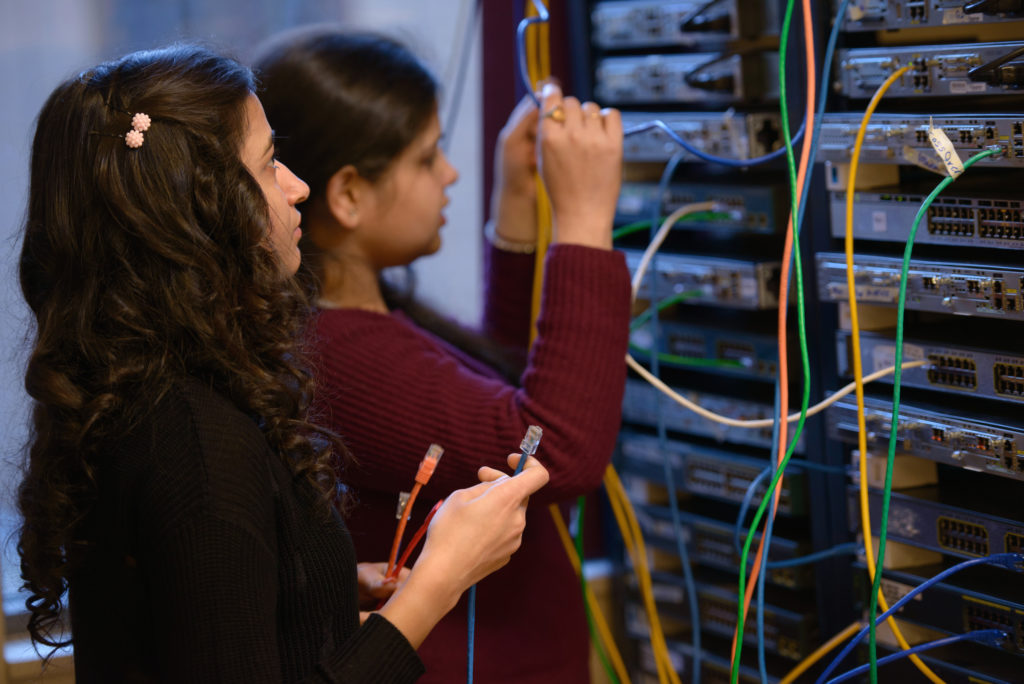
Shock-proofing postsecondary: Digital transformation in applied learning
This project, initiated by Saskatchewan Polytechnic, aimed to address the challenges in online education exposed by the COVID-19 pandemic. The project focused on enhancing the online learning experience in applied fields such as information technology, agriculture, health care, manufacturing and warehousing. The success of these sectors are critical to the success of the Canadian economy and are traditionally dependent on hands-on training. The initiative targeted equity-deserving groups, including women, Indigenous people, newcomers, and individuals with disabilities.
Inclusive EconomyTech and AutomationSK -

Resilience of newcomer women in northwestern Ontario: Overcoming economic shock due to the COVID-19 pandemic
The project “Resilience of newcomer women in northwestern Ontario: Overcoming economic shock due to the COVID-19 pandemic,” led by Lakehead University, explored the employment challenges and recovery prospects of newcomer women in northwestern Ontario post-COVID-19. Conducted in both rural and urban areas, the study involved 66 interviews and surveys with over 5,000 residents of northwestern Ontario. The study was designed to assess how the pandemic affected these women’s job opportunities.
Inclusive EconomyON -

Luminary: Advancing Indigenous innovation for economic transformation, employment and well-being
Indigenous Works, a national Indigenous not-for-profit organization, developed the Luminary Research and Innovation Project to enhance innovation in Indigenous business environments, with the knowledge that more Indigenous-led research is needed to catalyze innovation and community well-being.
Inclusive Economy -

Future of work skills development program
This project centred on several key research questions aimed at addressing the urgent needs of the Canadian labour market, particularly changes to job prospects and the accelerating trend of technology adoption.
Pathways to JobsNB -

Driving innovation through inclusion: ACCELERATE Leadership
Diversity, equity, and inclusion are key drivers of the innovation needed to boost Canada’s global competitiveness and deliver meaningful, future-proof jobs. The innovation economy represents a significant opportunity for increased prosperity for Canada and those who live here. Despite some progress, however, diverse people are underrepresented in Canada’s innovation workforce and receive less funding and opportunities for research and development.
Inclusive Economy -

Entrepreneurial skills in the North: Insights from Aurora College
Indigenous entrepreneurship helps to build resilience in the face of labour market instability, and to create opportunities for culturally relevant and economically self-reliant livelihoods in the North, with lasting impact that is owned by communities themselves.
Inclusive EconomyPathways to JobsNT -

Re-skilling displaced retail workers
The retail sector in Canada is increasingly embracing automation. While technological adoption bodes well for the sector, it puts at risk a number of young people, including racialized and Indigenous youth, who work in retail. The pandemic accelerated this impact, putting many out of work as the labour demand decreased during the lockdowns. The Re-skilling Displaced Retail Workers project sought to support the design of a re-skilling program for displaced Ontario retail workers, with a focus on racialized or Indigenous youth. The project had four phases: concept generation, research, design and prototyping.
Inclusive EconomyPathways to JobsON -
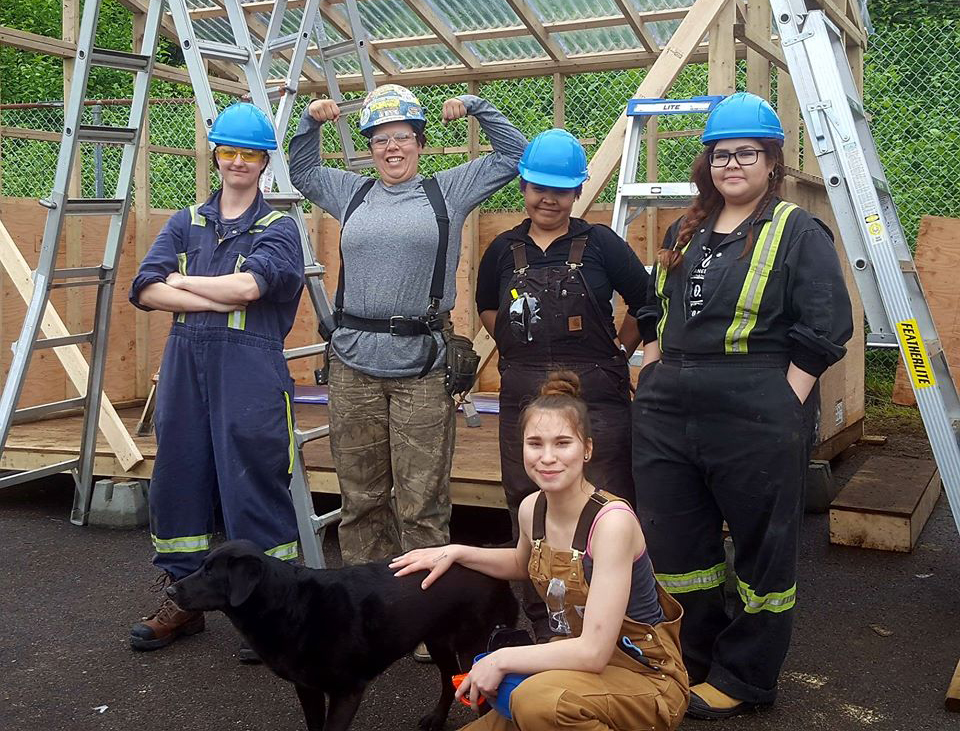
North coast skills hub
The COVID-19 pandemic highlighted the critical need for digital infrastructure and internet access across Canada, particularly in rural and remote communities. Despite advancements, approximately 1.4 million households in Canada still lack high-speed internet, widening the digital divide.
Inclusive EconomyBC -

Skills matching and opportunities in wood manufacturing
The Wood Manufacturing Council (WMC), with support from the Conference Board of Canada (CBoC), launched the Skills Matching and Opportunities in Wood Manufacturing project to address the gap between job seekers’ desires for viable and desirable career transitions and the recruitment challenges faced by the wood manufacturing sector.
Pathways to JobsSectors in transition -

From data to decision: AI training and professional certification
The project was a short, online certified program in artificial intelligence (AI) for professionals and leaders offered by IVADO in collaboration with the University of Montreal. The project aimed to address the current and future needs of the labour market for AI skills, and to provide a flexible and customized learning experience for the participants.
Pathways to JobsTech and Automation -

On the frontlines of crisis training program
During the COVID-19 pandemic, there was an increased demand for food production and distribution services from non-profit community service organizations, and an increased need for workers with the right mix of skills to meet this demand. In response, Weston Frontlines Centre created the Frontlines of Crisis Training Program, a 15-week hybrid training program to prepare young people with skills relevant for food production and distribution in the non-profit sector.
Pathways to JobsSectors in transitionON -
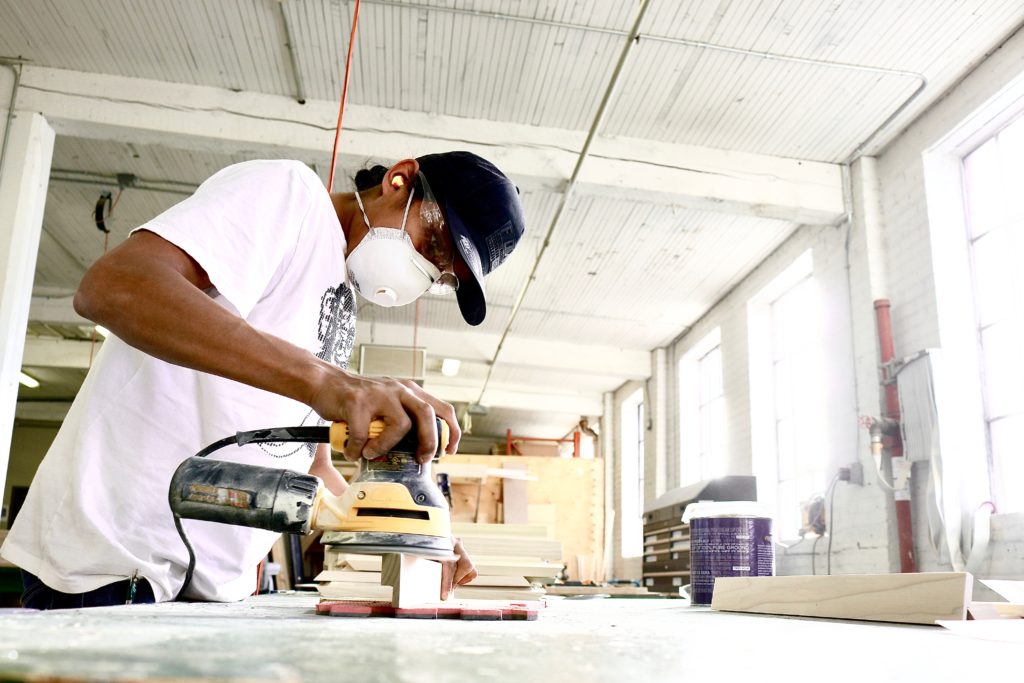
Skills, Explore, Achieve, Revive (SOAR)
The second-largest occupational group in Newfoundland and Labrador, comprising trades, transport, and equipment operators, faced significant challenges during COVID-19. To meet local labour market needs, the Murphy Centre team created the SOAR (Skills, Explore, Achieve, Revive) program to provide free and accessible tutoring and counselling services to support retention of early career tradespeople and their longer-term career advancement.
Pathways to JobsNL -

Resilience digital marketing prototype
Business owners from equity-deserving groups were among the hardest hit during the COVID-19 pandemic. Many of them were forced to pivot their businesses online and needed to quickly develop or sharpen their digital marketing capabilities.
Inclusive EconomySME AdaptabilityTech and AutomationON -

eCampusOntario microcredentials: Getting people into programs and into jobs
Launched in 2021, eCampusOntario’s micro-credential portal addresses skills mismatches in the labour market by offering short, industry-relevant learning programs. It has attracted over 40,000 unique users.
Pathways to JobsON -

DMG studio startup social finance resource toolkit
There is a lack of representation of BIPOC, women and 2SLGBTQ+ peoples in the games development industry. Marginalized communities need specific skills to succeed in this burgeoning sector of the economy.
Inclusive EconomyON -

Atlantic Autism Supports and Employment Network (AASEN)
Although research has shown that neurodivergent individuals can be highly engaged and productive employees, autistic individuals in the Atlantic Region are significantly underrepresented in the labour market. To address this issue, Autism Nova Scotia created the Atlantic Autism Supports and Employment Network (AASEN).
Inclusive EconomyPathways to Jobs -

Creating a microlearning model for the Canadian mining industry
The mining industry is suffering from labour shortages that are expected to worsen. The industry needs to invest in training to ensure that new and existing workers gain and maintain the skills to do their jobs effectively. However as mining is a 24-hour operation, it leaves very little room for workers to step away to participate in training.
Pathways to JobsSectors in transitionNLNU -

Building capacity for advancing climate change leadership
Canada needs a climate-ready workforce with the ability to translate knowledge and information into concrete actions to address the energy transition, climate change mitigation, and adaptation.
Sustainable JobsON -
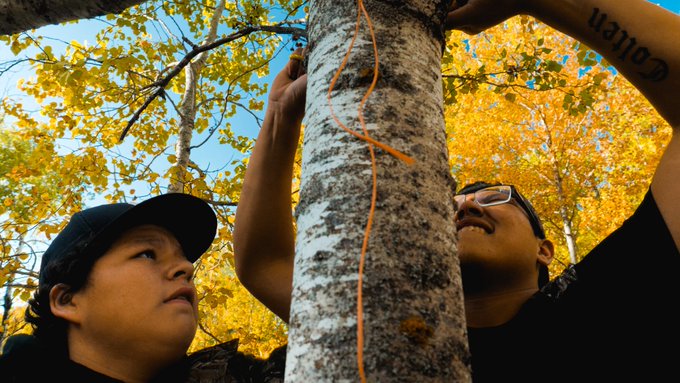
For-credit inSTEM program
Indigenous youth in Canada face significant barriers to pursuing STEM education and careers, including low high school completion rates, a lack of culturally relevant support systems, inadequate integration of Indigenous Knowledge into curricula, and the intergenerational trauma of colonialism.
Inclusive EconomyPathways to Jobs -

ABC Skills Hub
Nearly half of Canadian adults have inadequate literacy skills, meaning they have poor reading, writing and numeracy skills that limit their ability to participate in the economy and daily life.
Pathways to Jobs -

Accelerating the smooth adoption of smart systems
In recent years, young people have faced difficulties in the labour market. Pandemic lockdowns impacted school and work for most young people, alongside accelerated technological change and the increasing prevalence of gig work (characterized by short-term, on-demand, and task-based labour) have all had negative impacts on quality of work for young people.
Sectors in transitionTech and AutomationON -

Emerging agricultural technologies and the future of food: Exploring potential
Cellular agriculture is a suite of technologies to grow proteins indoors, with minimal or no use of live animals. Products have the potential to be local, reliable dairy and meat alternatives with low environmental footprints and can be produced in industrial, urban and rural spaces.
Sectors in transitionTech and AutomationBC -

Harnessing the digital economy for women of colour in Canadian undergraduate STEM programs
A large percentage of people from diverse groups recruited into STEM undergraduate programs do not complete a STEM degree. This project conducted a systematic literature review exploring current research about retention efforts for women of colour in post-secondary STEM programs.
Inclusive EconomyTech and Automation -
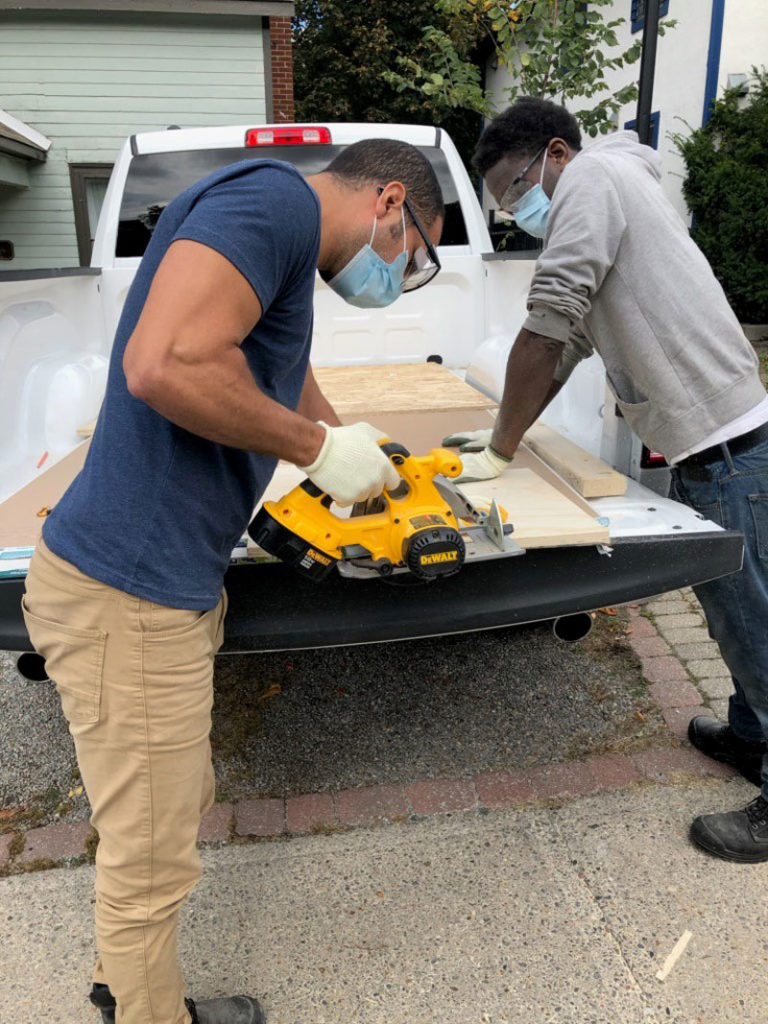
Construct Blue Door Support Services
Durham Region in Ontario has an ongoing housing and skilled trades worker shortage, disproportionately affecting low-income and marginalized populations, further exacerbated by the pandemic. To address this issue, the Blue Door team, which first launched its Construct social enterprise initiative in York Region in 2020, expanded to Durham in the following year with support from the Future Skills Centre.
Inclusive EconomyPathways to JobsON -
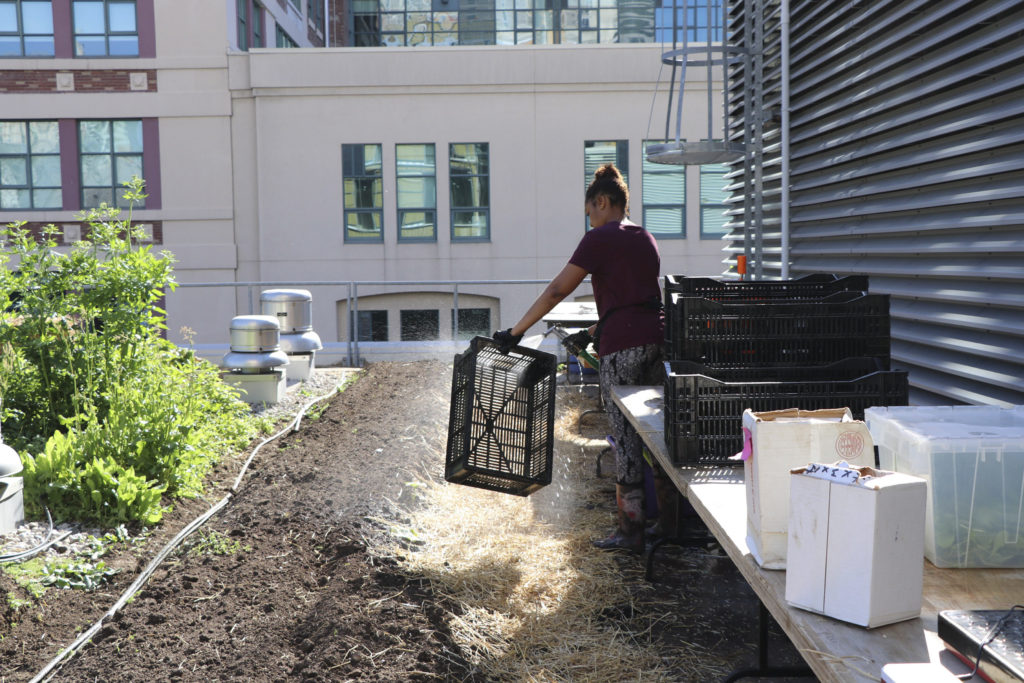
Governing sustainable municipalities
Canadian municipalities are on the front-lines of many of the acute economic, social and environmental challenges facing Canada and play a pivotal role in this nation’s progress towards sustainable development goals.
Sustainable JobsSK -

NARE: National Accessibility Resources for Employers
COVID-19 created an uncertain landscape that required new knowledge and tools for employers to enable them to support employment of people living with disabilities.
Inclusive Economy -

State of Skills: Unleashing AI into the skills development ecosystem
FSC-supported AI tools have bolstered outcomes in skills matching, career development guidance, and recruitment. The overall effectiveness of these tools was underpinned by recognizing and mitigating the inherent bias and discrimination embedded into these technologies.
Tech and Automation -

Synergy: Workforce development for vulnerable women to succeed
The project aimed to advance gender equity in the Canadian labour market and address the unique challenges women and equity-deserving groups face in accessing gainful employment.
Inclusive Economy -

Teaching vulnerable SMEs the innovation skills to develop sustainable, long-term remote work strategies
In recent years, young people have faced difficulties in the labour market. Pandemic lockdowns impacted school and work for most young people, alongside accelerated technological change and the increasing prevalence of gig work (characterized by short-term, on-demand, and task-based labour) have all had negative impacts on quality of work for young people.
SME Adaptability -

Accelerating the appropriate adoption of artificial intelligence in health care
In recent years, young people have faced difficulties in the labour market. Pandemic lockdowns impacted school and work for most young people, alongside accelerated technological change and the increasing prevalence of gig work (characterized by short-term, on-demand, and task-based labour) have all had negative impacts on quality of work for young people.
Tech and Automation -

Early childhood education training lab
Even before the increased demand brought on by the Canada-wide Early Learning and Child Care agreements, early childhood educators (ECEs) were increasingly being called on to obtain more skills and credentials, without a parallel increase in wages, benefits, or improvements in working conditions. If wages and working conditions do not improve, there is concern that there will not be enough qualified ECEs to implement the national program.
SME Adaptability -

Artificial intelligence and the future of work: What do we know so far?
The increased deployment of Artificial Intelligence (AI) in work and society offers tremendous opportunities in terms of innovation and productivity but has also raised concerns about its potential negative, and wide-ranging effects.
Tech and Automation -

Future-proofing the food and beverage processing workforce
The food and beverage processing sector faces challenges in finding and retaining skilled workers. Using its industry-validated Learning and Recognition Framework, Food Processing Skills Canada developed the STAC program to address the skill gaps and training needs of the industry.
SME Adaptability -

A program for young moms in Northern Manitoba
In recent years, young people have faced difficulties in the labour market. Pandemic lockdowns impacted school and work for most young people, alongside accelerated technological change and the increasing prevalence of gig work (characterized by short-term, on-demand, and task-based labour) have all had negative impacts on quality of work for young people.
Inclusive EconomyMB -

In Motion & Momentum+: Building resilience, hope and sustainable futures
In recent years, young people have faced difficulties in the labour market. Pandemic lockdowns impacted school and work for most young people, alongside accelerated technological change and the increasing prevalence of gig work (characterized by short-term, on-demand, and task-based labour) have all had negative impacts on quality of work for young people.
Pathways to JobsABBCNLNSSK -

Young newcomers and international students in diploma programs: Shock-proofing through language confidence
In recent years, young people have faced difficulties in the labour market. Pandemic lockdowns impacted school and work for most young people, alongside accelerated technological change and the increasing prevalence of gig work (characterized by short-term, on-demand, and task-based labour) have all had negative impacts on quality of work for young people.
Inclusive EconomyBC -

Career pathways of immigrants: Looking for meaning amid starting again
This project aimed to understand how skilled migrants determined their alternative career pathways.
Quality of workON -

Using behavioural insights to increase post-secondary and career services participation
This project, through the execution of a number of randomized control trials, tested how best to inform, empower, and engage Canadians when it comes to making decisions about work.
Core skillsPathways to JobsABBCSK -

State of Skills: Quality of Work
Like many economies across the world, Canadians (and Canadian employers in particular) recognize that Canada needs more skilled tradespeople. Not enough Canadians, however, appear to be interested in pursuing these careers. Rates of enrollment in apprenticeships are falling short of where labour demand is. Past efforts to increase numbers of skilled tradespeople through immigration have fallen short of their targets, with low admittance through federal programs and a lack of information available for new Canadians on how to get qualified.
Quality of work -

Transforming skills and talent acquisition in Canadian cybersecurity
In recent years, young people have faced difficulties in the labour market. Pandemic lockdowns impacted school and work for most young people, alongside accelerated technological change and the increasing prevalence of gig work (characterized by short-term, on-demand, and task-based labour) have all had negative impacts on quality of work for young people.
SME AdaptabilityTech and Automation -

Building the skills of the trucking industry for the future
For employers in the knowledge economy, hybrid work remains critical not only to post-pandemic recovery but to the future of work.
Tech and Automation -

Skills and strategies for quality hybrid work in Canada
For employers in the knowledge economy, hybrid work remains critical not only to post-pandemic recovery but to the future of work.
Quality of workTech and Automation -

Autism CanTech!: Social return on investment and policy review
This project sought to better understand the work experiences of young people with autism, the impacts of assured income policies on employment outcomes of participants, and the overall social return on investment of the ACT! program itself.
Inclusive EconomyQuality of workTech and AutomationAB -

Work quality experience and engagement among young workers
In recent years, young people have faced difficulties in the labour market. Pandemic lockdowns impacted school and work for most young people, alongside accelerated technological change and the increasing prevalence of gig work (characterized by short-term, on-demand, and task-based labour) have all had negative impacts on quality of work for young people.
Quality of workON -

Did the pandemic and labour shortages impact job quality?
This project used Canadian job ads to understand changes in the terms of employment offered to job seekers, focusing specifically on skill, education, and experience requirements, as well as job benefits, between the two-year period prior to the pandemic (2017-2019) and 2022.
Quality of work -

Disabled gig workers in Canada: Exploring experiences and identifying interventions to improve safety and well-being
This project examined gig work literature and applied its insights to conduct semi-structured interviews with a small group of Canadians with disabilities engaged in gig work.
The findings from the review and interviews showed that many people living with disabilities feel pushed into gig work by a lack of other employment options.
Quality of work -

Workplace innovation for quality of work
This project worked with a small sample of Canadian workplaces to adapt research advances from Europe to improve quality of work through employee-led workplace innovation. It also identified what European policy and program issues and initiatives should be explored further to guide Canadian initiatives to scale-up employee-led workplace innovation for quality of work.
Innovation and scalingQuality of workABBCNLON -

TIMES 2.0
This project was carried out by Yonge Street Mission (YSM) to improve their workforce development strategy using a data tool called TIMES™ (Transformation Integrated Measurement and Evaluation System). The tool collects and analyzes data on barriers and supports that affect job readiness for their clients, such as food, housing, relationships, education, skills and health. The project aimed to migrate the tool from a narrow and rigid platform to a more robust and flexible online platform (Salesforce) that helps…which would facilitate ease of use, collaboration, reporting and onboarding of external partners.
Inclusive EconomySME AdaptabilityON -

State of Skills: Innovation in Training, Recruitment and Upskilling for Skilled Trades
Like many economies across the world, Canadians (and Canadian employers in particular) recognize that Canada needs more skilled tradespeople. Not enough Canadians, however, appear to be interested in pursuing these careers. Rates of enrollment in apprenticeships are falling short of where labour demand is. Past efforts to increase numbers of skilled tradespeople through immigration have fallen short of their targets, with low admittance through federal programs and a lack of information available for new Canadians on how to get qualified.
Inclusive EconomyPathways to JobsSustainable Jobs -

Built to scale: Assessing microcredentials for digital sector professionals
This project explored the uptake of microcredentials within digitally intensive industries in Canada, a field projected to grow and change in coming years. The project used a novel form of labour market information — LinkedIn profiles — to discern differences in skill, occupational seniority, and microcredential certification in the tech labour market in Canada.
Innovation and scalingTech and Automation -

Career pathways for mid-career workers through work-based learning
The Work Based Learning Consortium (WBLC) and its partners developed and delivered a training program in response to a shortage of workers with the right skills for entry- to mid-level jobs in the advanced manufacturing industry in Ontario. This project aimed to bridge those skills gaps by helping mid-career workers with little relevant work experience get hired in mold maintenance jobs and acquire industry-valued skills and certifications on the job, and by upskilling current workers in mold maintenance.
SME AdaptabilityON -

A pay-for-performance model for skills training
This project was designed to address two key issues: employer underinvestment in training and low participation in training programs that address skill gaps in manufacturing. The Social Research and Demonstration Corporation (SRDC), in partnership with Excellence in Manufacturing Consortium (EMC) piloted an outcomes-based “pay for performance” (PFP) model which reimbursed employers if they successfully supported delivery of EMC’s Manufacturing Essentials Certification (MEC).
SME Adaptability -

Future city builders
Future City Builders was a four-month program that supported youth to work collaboratively to develop real-world solutions for healthier and more equitable cities. By engaging in collaborative projects, participants were expected to gain knowledge and skills that made them more employable, better able to create their own employment opportunities, and use their newly developed skills throughout their career and life to contribute to sustainable cities.
Tech and Automation -

The skills algorithm: Digital skills demand across Canada’s labour market
This research examined the experiences and attitudes towards remote work in Canada for employees and supervisors and sought to understand how the arrangement has affected productivity, satisfaction, trust and well-being.
Pathways to JobsTech and Automation -

Inuvialuit Skills Matrix
The Inuvialuit Regional Corporation was created in 1984 through the Inuvialuit Final Agreement land treaty agreement with Canada to advance the interests of Inuvialuit in the Beaufort Delta of the Northwest Territories and across Canada through the protection of land and culture, provision of services and the creation of economic opportunities. As part of these efforts, FSC has funded IRC’s project Inuvialuit Skills Matrix, an initiative which would introduce data, infrastructure and strategic planning tools to create a systemic solution to job creation, training and skills development.
Inclusive EconomyNT -

Indigenous Business Centre of Excellence (IBCE) Feasibility Study
Aurora College’s FSC-funded project Indigenous Business Centre of Excellence (IBCE) Feasibility Study aimed to better understand needs, opportunities and best models in establishing an Indigenous Business Centre of Excellence (IBCE) at the NWT institution, as well as establishing a model for a two-year pilot.
Inclusive EconomyNT -

Northern Entrepreneurs Accessing Training (NEAT)
Contact North’s FSC-funded project Northern Entrepreneurs Accessing Training (NEAT) will support entrepreneurs and SMEs in rural and remote Indigenous communities in northern Ontario and northwest British Columbia to access education and skills training in their community to meet their identified skills training needs in order to continue to innovate.
Inclusive EconomyBCON -

Long-term labour market scarring on youth from economic shocks
Regardless of labour market conditions, some young people have a hard time transitioning into the labour market and are not working or training for extended periods of time. During an economic shock like a recession, challenges are heightened.
Inclusive Economy -

lnshore Fishery Development in the Qikiqtani Region of Nunavut
As part of its five year plan to address the human resource needs for successful inshore fisheries research and development in the Qikiqtani region, QC accessed FSC funding to develop the Inshore Fishery Development in the Qikiqtani Region of Nunavut program.
Inclusive EconomyNU -

EntrepreNorth: Taking IT Digital
The EntrepreNorth App Development project focused on creating a multi-user applied business tool that supports entrepreneurs and social innovators with investment and impact readiness, and ongoing business planning and strategy.
Inclusive EconomyTech and AutomationNTNUYT -

Supporting place-based SMEs in the rural Yukon in post-pandemic environment
The project Supporting Place-based SMEs in the Rural Yukon in the Post-Pandemic Environment responds to the realities of the pandemic on this sector in the region. The project seeks to support the monetization of land-based activities for SME’s in rural Yukon, as well as to enhance relationships with existing SME’s in the rural region of the territory.
Inclusive EconomySectors in transitionYT -

Indigenous Tourism Association of Canada (ITAC)
The Northern Tourism Recovery Incubator developed by ITAC was created to support SMEs in Northern communities to strengthen their business, rebuild Indigenous tourism operators and re-train staff members to support visitors and public health expectations as the tourism industry recovers.
Inclusive EconomySectors in transitionABBCMBNLNTQCSK -

Lighting up the North
Yukonstruct designed Lighting Up the North, a suite of partner-focused programs with tailored support, connections to resources, and activities that help entrepreneurs spanning multiple target groups to be better equipped to step into entrepreneurship, grow businesses, and access the right funding for their ventures.
Inclusive EconomyInnovation and scalingPathways to JobsYT -

HireNext artificial intelligence AI-enabled job posting tool
The tool lets employers evaluate existing job postings’ structure and wording through an equity, diversity and inclusion lens, using artificial intelligence to identify underlying and implicit biases. The modified job postings are designed to be more accessible to equity-seeking groups, thus providing employers with a larger, more diverse pool of candidates.
SME AdaptabilityTech and AutomationABNSON -

A Newcomer Employment Resilience Network NL (NERN NL) – Optimizing Connections; Making the Match
The project demonstrated how sector-specific networks can improve job prospects for newcomers and foster collaboration among local employers and businesses. The initiative also showed the value of tailored mentoring and involving community agencies to better integrate newcomers into the job market.
Inclusive EconomyPathways to JobsNL -

Pathways and Prior Learning Assessment and Recognition (PLAR) for internationally trained and non-traditional applied health professionals
This project sought a better understanding of how PLAR is used, or can be used, to effectively accelerate learners through programs in the applied health sciences.
Inclusive Economy -

Gauging the potential of occupational pluralism in rural Atlantic Canada
This project assessed the potential contribution of expanded and modernized seasonal occupational pluralism — where workers combine different jobs in different parts of the year to generate their annual incomes.
Inclusive Economy -

Two-Eyed Seeing Network
Ongoing and persistent labour and skill shortages coupled with underemployment among key segments of the population, notably Indigenous youth have left the connections between industry and Indigenous populations to remain underdeveloped.
Inclusive EconomyBC -

Virtualization of experiential learning platforms and their pedagogical models
In response to this challenge, the British Columbia Institute of Technology (BCIT) tested the virtualization of training by building a platform that provided learners, instructors and researchers with remote access to a physical training environment.
Tech and Automation -

Understanding the relationship between quality of work and remote work support and monitoring
This research examined the experiences and attitudes towards remote work in Canada for employees and supervisors and sought to understand how the arrangement has affected productivity, satisfaction, trust and well-being.
Quality of workTech and Automation -

Quality of work of Canada’s contingent workforce
This research sheds light on the reasons why people engage in gig work and the policy levers needed to mitigate the risks associated with this new form of employment.
Quality of work -

Cook to connect
The program addresses challenges most newcomers to Canada face in the first five years after their arrival when searching for employment; a lack of Canadian experience and language barriers specific to a work context. To that end, the C2C program provides culinary instruction, English-language lessons and experience in a catering kitchen workplace.
Inclusive EconomyNL -

Improving the quality of work in Canada: Prioritizing mental health with diverse and inclusive benefits
This research examines the relationship between access to benefits and quality of work in the current Canadian context, with a central focus on mental health and well-being, diverse forms of care and greater inclusion for those without benefits.
Inclusive EconomyQuality of work -

Employer and employee perceptions of microcredentials
This study evaluates emerging evidence on microcredentials and examines how employers and learners assess their value as a measure of quality of work.
Pathways to JobsSME AdaptabilityAB -

State of skills: Better labour market transitions for mid-career workers
The future labour market will be a tumultuous one, as it will be shaped in part by a transition to a “net-zero carbon” economy, an increasing pace of workplace technological change, globalization and other forces. Canadian workers will face rapid shifts in labour and skills demand between sectors, and pressure to upgrade their knowledge and skills.
Inclusive EconomyPathways to Jobs -

State of Skills: Digital Tools in the Skills Ecosystem
Canada has lagged behind other OECD countries in providing digital skills development and career services delivery online. However, the pandemic forced many career development providers to stop in-person delivery, creating incentive for the sector to innovate and move, at least temporarily, to delivering services online.
Inclusive EconomyTech and Automation -

Mapping racialized experiences in the real estate development industry
The real estate development industry is vital to Canada’s economy, but there is low representation of racialized professionals in the industry. This makes the sector less responsive to diverse community needs than it could be and limits its ability to address the worsening housing crisis.
Inclusive EconomyON -
Skills for innovation: International case studies
Canada’s domestic manufacturing sector is missing out on opportunities to compete with the rest of the world because innovative employers are unable to find workers with the skills they need, and workers are unsure about what they need to stay relevant.
Innovation and scaling -

Laying Foundations: Technological maturity in Canada’s construction sector
In this research project, the Brookfield Institute conducted interviews and surveys with 14 industry leaders from 11 firms spanning three broad sub-sectors across the country. The objective was to improve understanding of what is contributing to the low uptick of technological innovation in the construction sector.
SME Adaptability -

Skills for a clean economy
Foresight Cleantech Accelerator Centre’s Skills for a Clean Economy project generated knowledge about employment opportunities in cleantech for workers at risk of disruption by the clean economy transition and the COVID pandemic.
Sustainable Jobs -

Strength in Structure
The Canadian Council for Youth Prosperity’s Strength in Structure project engaged Black youth and Black-focused, Black-led and Black-serving, or B3, community organizations to develop a toolkit intended to improve delivery of services to meet the needs of Black youth job seekers.
Inclusive EconomyABNSONQC -

Building capacity in Indigenous early childhood education
The project explores how Indigenous communities can be engaged in the care and education of their children and how they might advocate for better and more equitable services and programing.
Inclusive EconomyQuality of workNB -
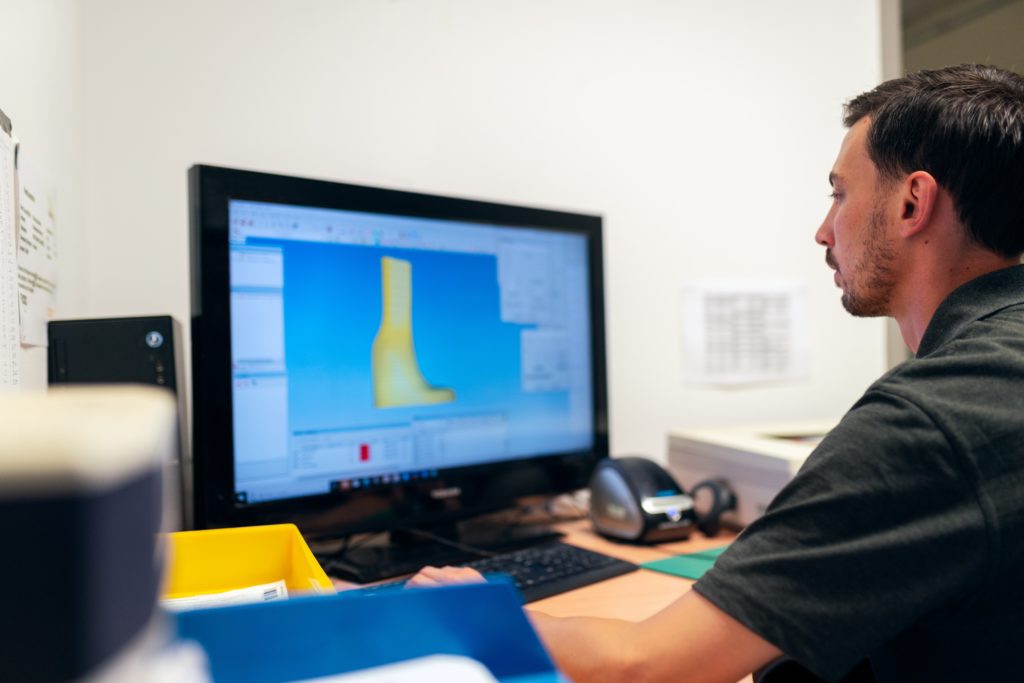
The impact of remote work on engineering
The Ontario Society of Professional Engineers sought to understand the impact on productivity and work culture of remote work in this industry, whether some equity seeking groups are disadvantaged, and to identify organizational strategies for adapting.
Inclusive EconomyON -

Training our career development professionals
This project sought to understand the challenges faced by practitioners as a result of the increasing role of technology in this industry and to shed light on the skills and supports these professionals and their clients need in future.
Pathways to JobsBC -
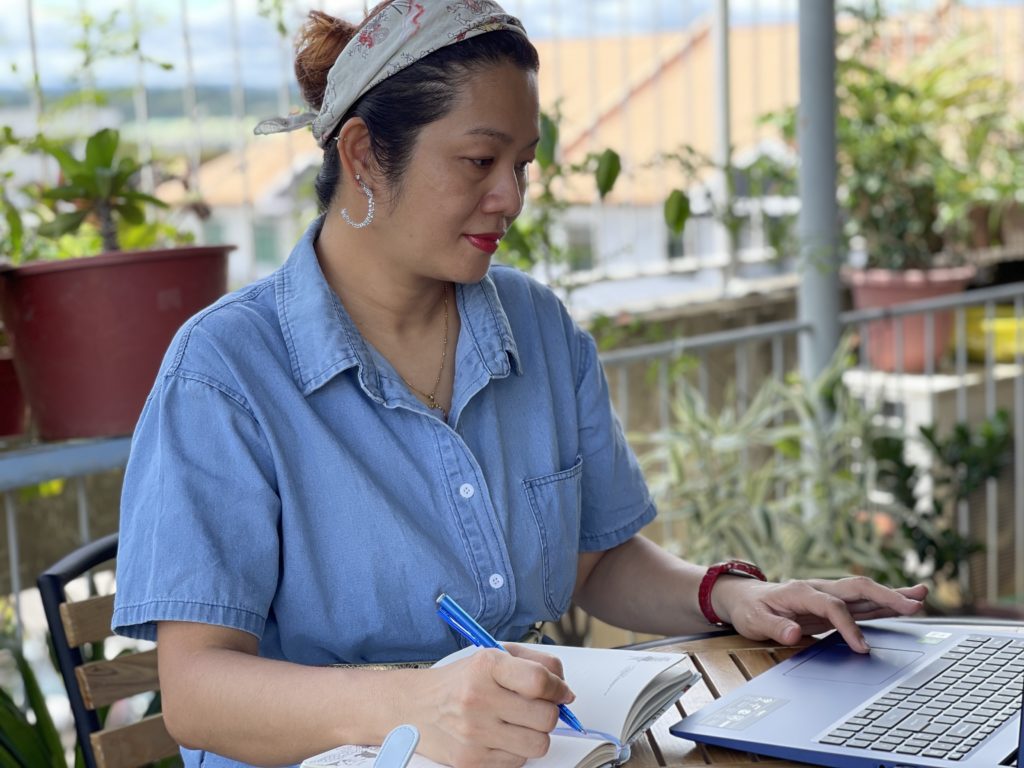
Calgary Regional WIL Secretariate and Portal
Work-integrated learning (WIL) gives people the chance to apply the skills they have learned in the classroom while gaining on-the-job experience and pathways to meaningful…
Core skillsPathways to JobsSME AdaptabilityAB -

Career Advancement for Immigrant Professionals 2.0
Help underemployed immigrant professionals overcome barriers to career advancement and help employers retain and leverage newcomer talent.
Inclusive EconomyPathways to JobsON -
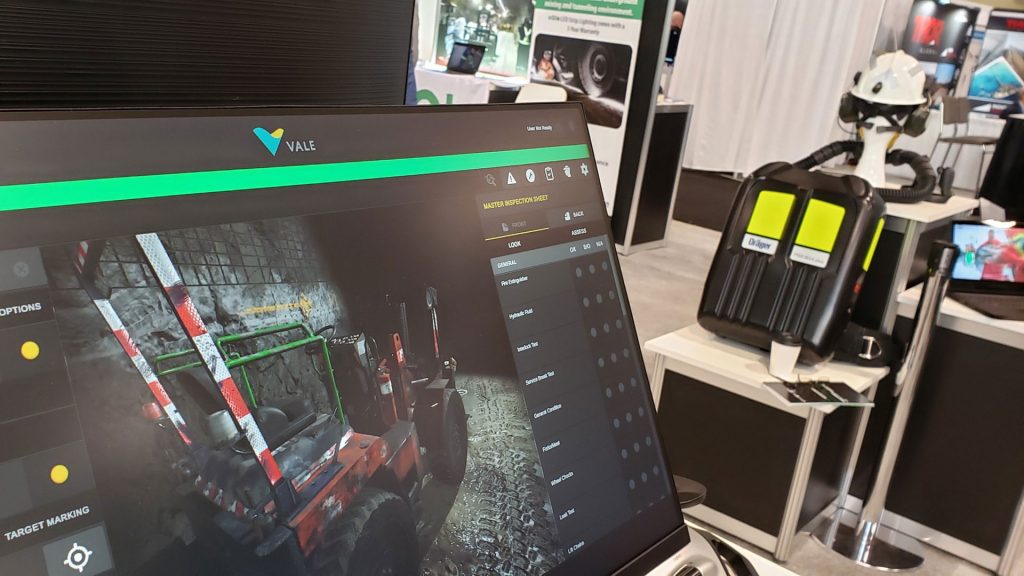
Tech-enabled learning programs for the mining industry
Project will be three two-week unique, demand-driven, and blended-learning training programs using VR, eLearning, simulations and in-field competency assessment. Final equipment selection will be aligned to meet the demand-driven needs of the industry partners.
Inclusive EconomyTech and AutomationON -

InTeRN: a young, northern workforce enters the world of ICT
A two-year network computer technology program geared to providing entry level skills and supports to Indigenous youth in Northern Manitoba.
Inclusive EconomyMBSK -

Be EPIC: Dementia Training for Mid-Career Workers
Dementia Training for Mid-Career Workers
Inclusive EconomySME AdaptabilityON -

Roadmap for workforce development in Newfoundland and Labrador
People in rural and remote areas of Newfoundland and Labrador face unique challenges in terms of employment and skills development. This project addresses the need…
Inclusive EconomyNL -

Strength in structure
This project aims to improve the way Black youth experience and navigate the world of work. Job search outcomes among Black young people have historically…
Inclusive EconomyABNSONQC -

Unleashing learning management systems
This project supports training and skills development needs among small and medium enterprises (SMEs) across Canada and fosters more inclusive workplaces.
Pathways to JobsSME Adaptability -

Black African and Caribbean entrepreneurship and leadership training program (BACEL)
This project will deliver training in entrepreneurship, networking and mentorship that strengthens and supports the Black business community.
Inclusive EconomyPathways to Jobs -
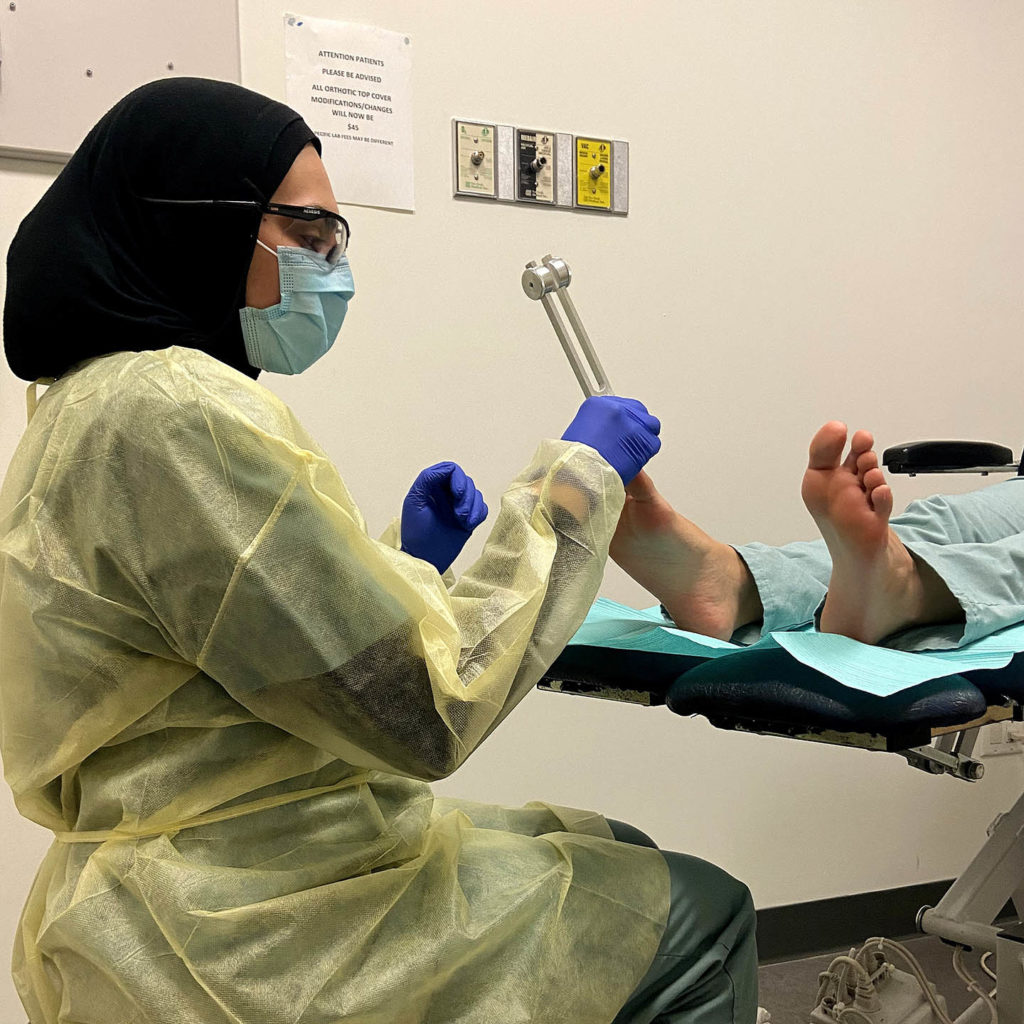
Best foot forward: Reskilling human resources for high-risk foot care
This project will examine the health human resources and health care needs to improve the management and treatment of foot care for persons with diabetes, as well as to enhance the efficiency of the health care system.
Pathways to Jobs -

Building resilience in the bio-economy
This project aims to help Canada’s bio-economy become more agile and resilient. It will engage BioTalent Canada’s network to research and evaluate innovative practices and technologies used by agile, resilient, and diverse Canadian bio-economy employers to excel in highly disruptive economic situations.
Pathways to JobsSustainable Jobs -

Test the waters: Competencies for the sustainable blue economy
This research project aims to develop national standards for jobs related to sustainable use of ocean resources, also known as the “blue economy”.
Sectors in transitionSustainable Jobs -
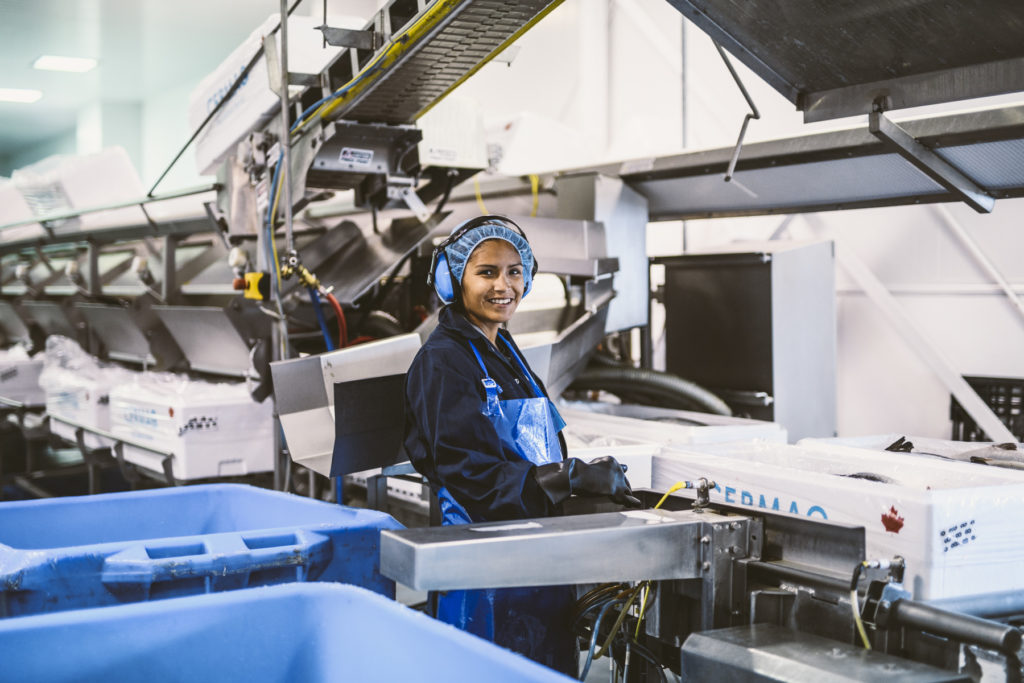
National workforce strategy for agriculture and food & beverage manufacturing
This project will address persistent and growing labour and skills shortages affecting Canada’s agriculture and food processing industries.
Sectors in transition -

Navigating a changing workforce
This project aims to provide career intelligence and access to targeted training for professionals in the public service to help them navigate the changing workforce.
Core skillsPathways to JobsSectors in transitionTech and AutomationBCONQC -
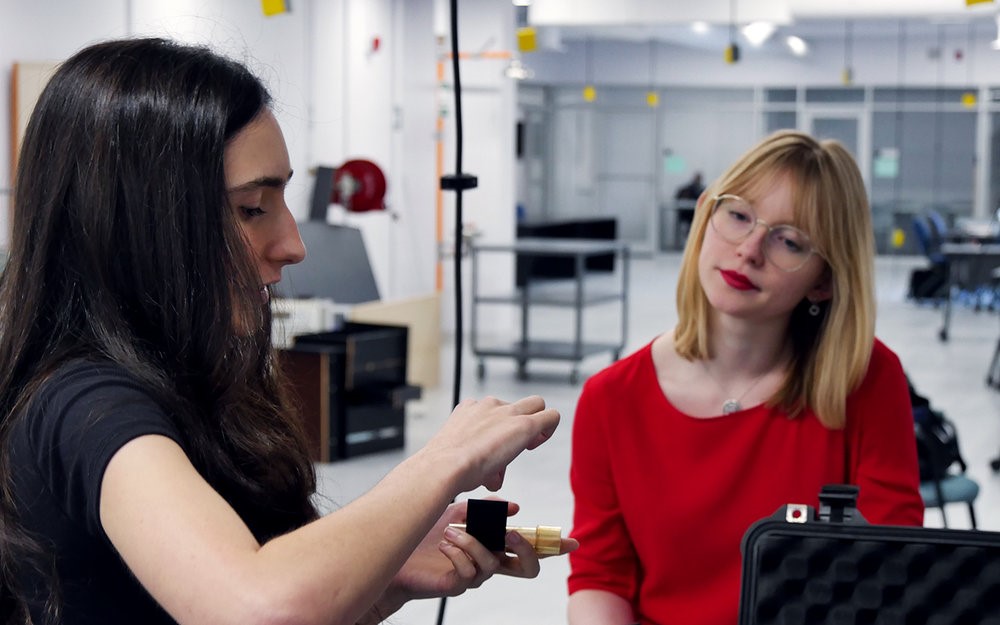
MindFrame Connect
This project will create evidence-based programming needed to develop the mindset and resilience of Canada’s high-performing entrepreneurs and elevate the craft of mentorship.
Pathways to Jobs -

Canadian cybersecurity skills and talent transformation
This project aims to transform the Canadian cybersecurity sector into a field that is inclusive and better positioned to meet the soaring demand for cybersecurity specialists in the country.
SME AdaptabilityTech and AutomationON -

Craft
Craft, an online marketplace, enables artists and designers to sell their work and services while developing skills to thrive in a just economy.
Pathways to JobsON -

SOAR
This project is a bridging program for students and workers in Newfoundland & Labrador that supports training in the skilled trades sector.
Inclusive EconomyNL -

Newcomer inclusion in Quebec small to medium enterprises
This project will help the manufacturing sector identify and improve the experience of onboarding immigrants to jobs in small to medium enterprises outside of large, gateway cities.
Inclusive EconomyQC -
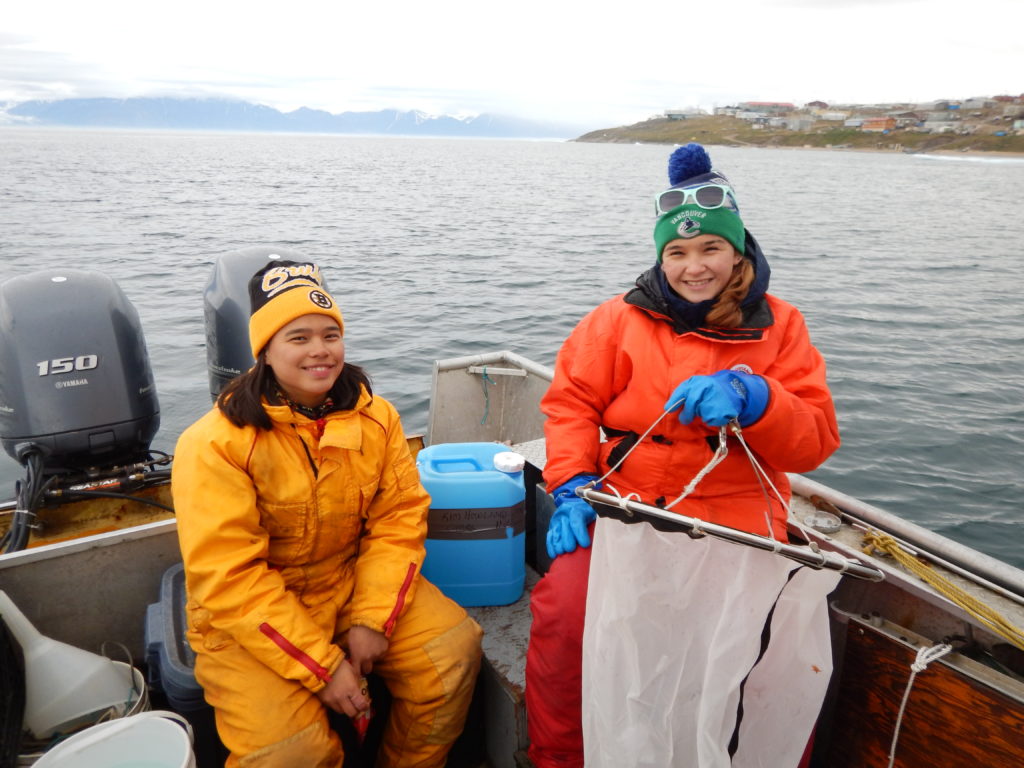
Securing sustainable northern fisheries
This partnership supports small-scale Arctic fisheries by introducing and promoting locally harvested products to Canada’s sustainable seafood market.
Inclusive EconomySectors in transitionBCNU -

Northern entrepreneur development network
This project creates a network to improve access to tools and training to help people in Yukon to build resilient businesses that are innovative, agile and forward-thinking.
Inclusive EconomyYT -

Yukon skills research and engagement
This research will examine and support Yukon as it recovers from the economic impact of COVID-19 while fostering resilience to prepare for future shocks.
Inclusive EconomyPathways to JobsYT -
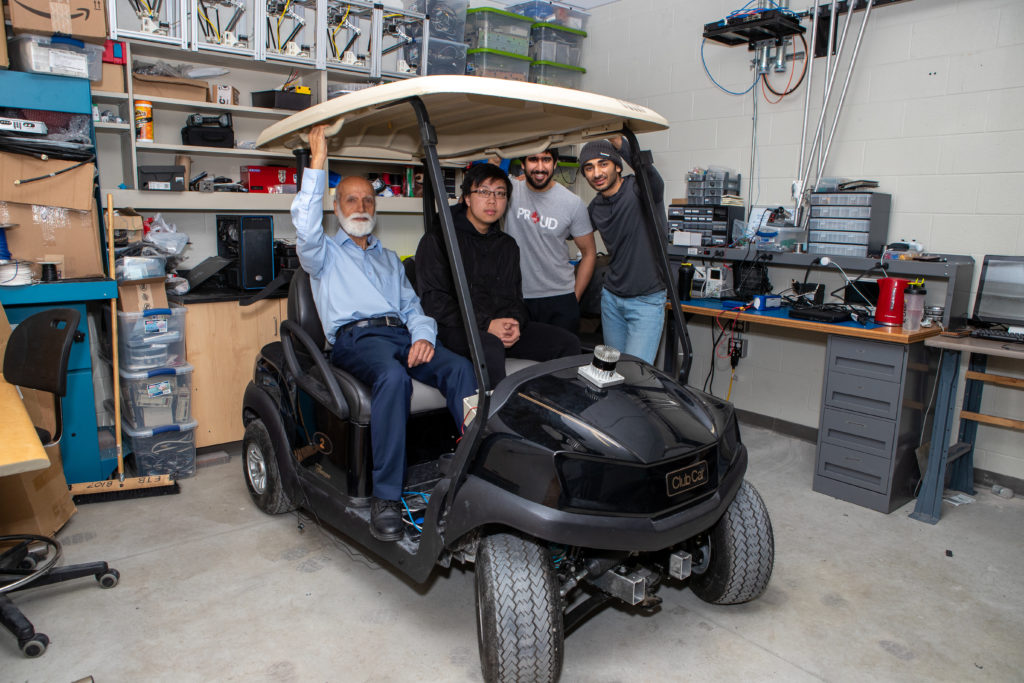
Smart systems and digital technologies for a new era
A network of resources will be created from industry, municipalities, and McMaster University to facilitate accelerated adoption of ground-breaking digital technologies.
Pathways to JobsTech and AutomationON -

The future of food through agricultural technology
This ground-breaking research explores the potential of cellular agriculture – food created in a lab – to create a year-round supply of nutritious food and develop jobs in an exciting new field.
Sectors in transitionTech and AutomationBC -

Minimizing gaps in Indigenous early learning
This project aims to find solutions to the shortage of trained Indigenous early learning and child care workers for Micmac communities.
Inclusive EconomyNB -
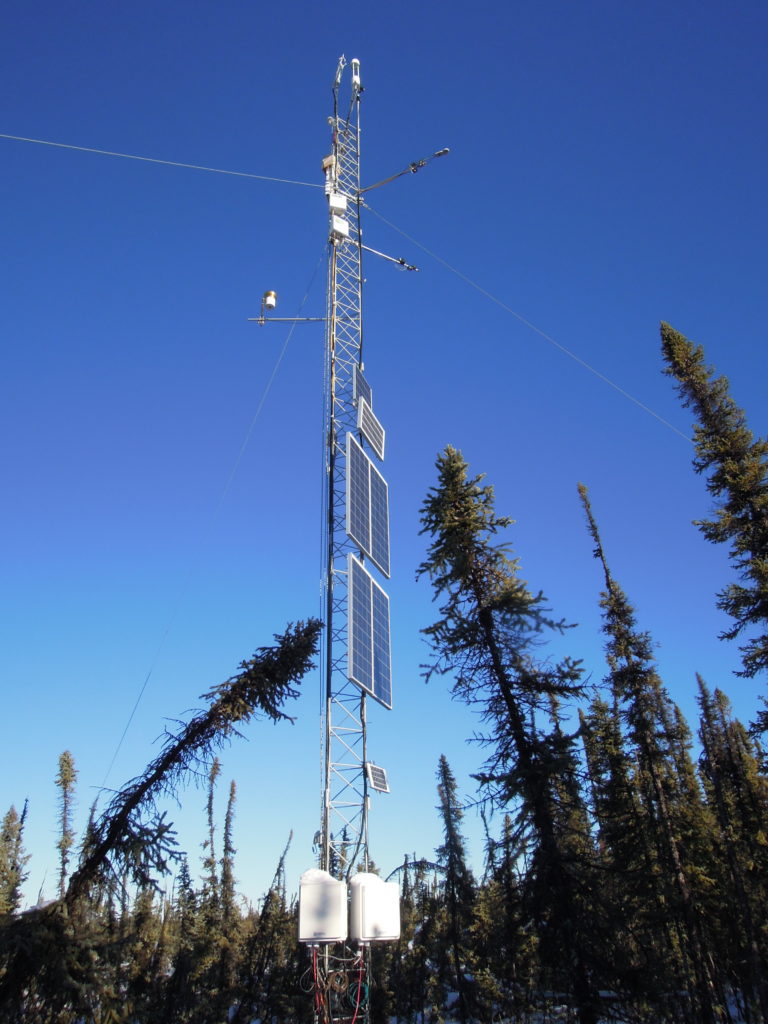
Monitoring climate change in the Northwest Territories
This project builds local capacity for community-based monitoring of towers to measure climate change in the Northwest Territories.
Inclusive EconomySustainable JobsNT -

Empowering young moms in Northern Manitoba
Young mothers benefit from career exploration, development and skill building.
Inclusive EconomyMB -
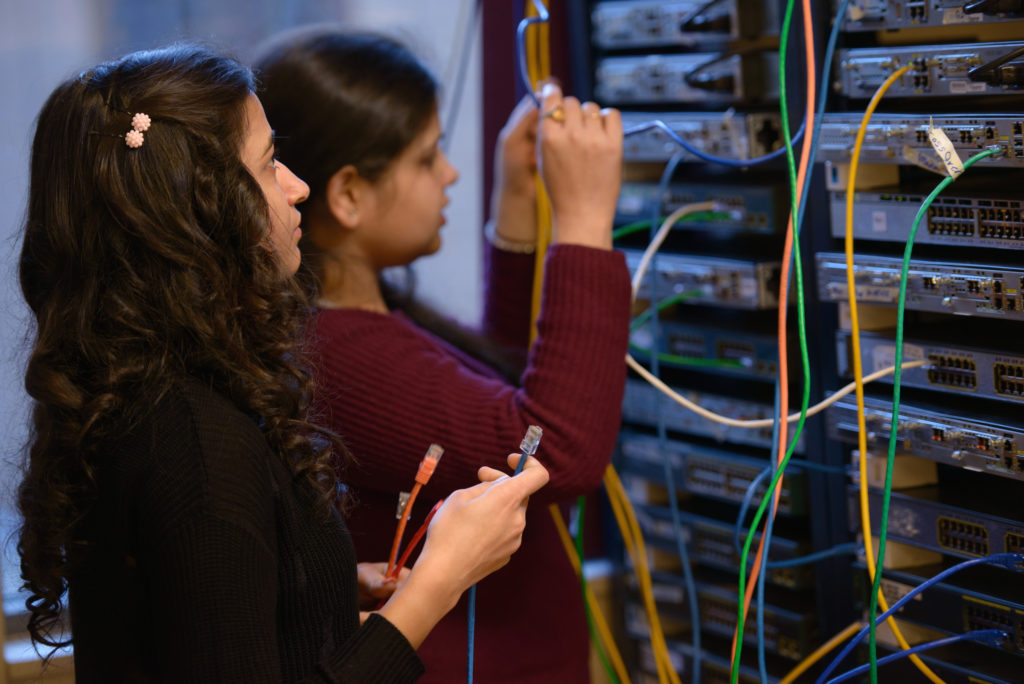
Digital transformation in applied learning
Virtual learning will enhance student success in training programs on information technology, agriculture and food chain supply, health care, manufacturing and warehousing sectors.
Inclusive EconomyTech and AutomationSK -

Futureproofing the PSW workforce
Personal support workers (PSWs) will engage in timely and accessible education, partnered advocacy, and professional development in key areas that respond to their needs on the job.
Inclusive EconomySectors in transitionON -

Impact of remote work on engineering and technology jobs
This project will study the impact of working-from-home on new graduates, women and newcomers to Canada in engineering and technology jobs.
Inclusive EconomyQuality of workSectors in transitionTech and AutomationON -

Enhancing skills among persons with disabilities
Persons with disabilities can enhance their employability by acquiring professional knowledge, skills, and attitudes that match labour market needs.
Inclusive EconomyQC -

Learning outside together
Early care and learning professionals gain knowledge and skills related to outdoor play and Indigenous approaches to “land as teacher”, in collaboration with First Nations and Métis communities.
Inclusive EconomyBC -
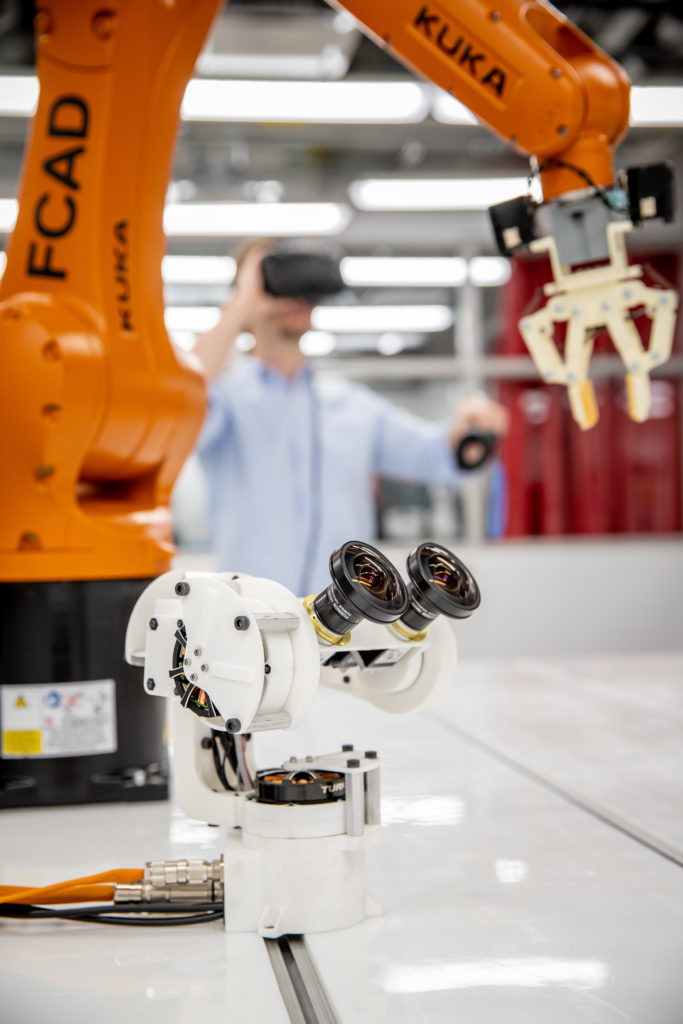
The autonomous microfactory
This pilot project focuses on skills training in digital fabrication, automation, and collaborative robotics, using new technologies for contactless fabrication and autonomous construction.
Pathways to JobsON -

Shock-proofing skills for the not-for-profit sector
Current and future not-for-profit managers will gain knowledge and skills to build resilience and growth in the sector as it addresses social needs.
Pathways to JobsON -
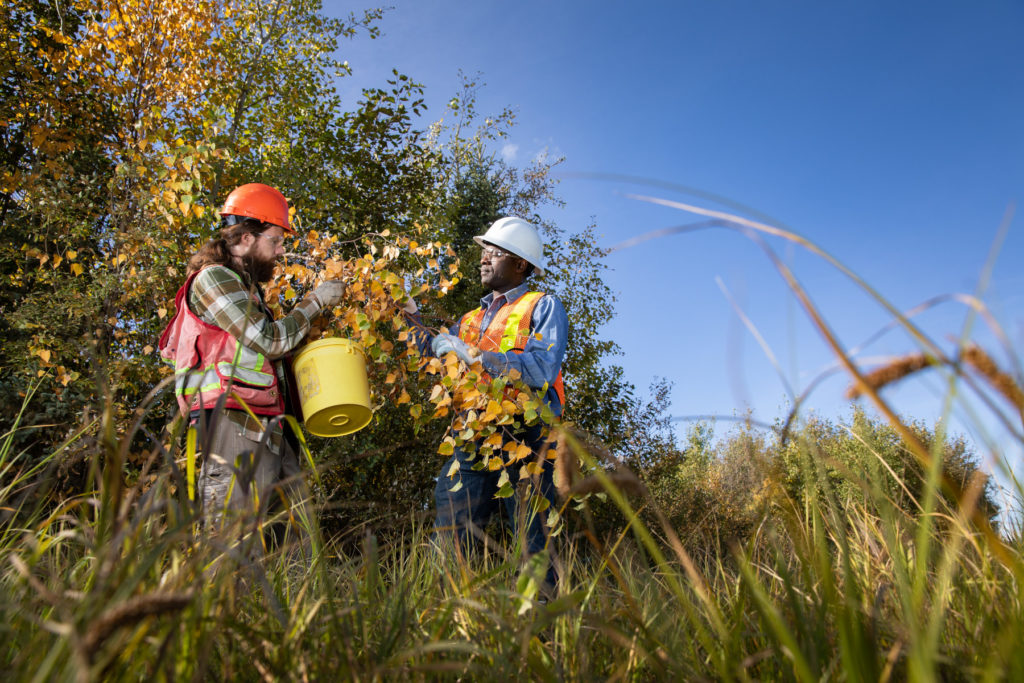
Forestry skills through immersive education for rural and remote communities
This project supports northern, rural, and Indigenous communities in Alberta to deliver technical and practiced competencies in forestry.
Inclusive EconomySectors in transitionABBC -
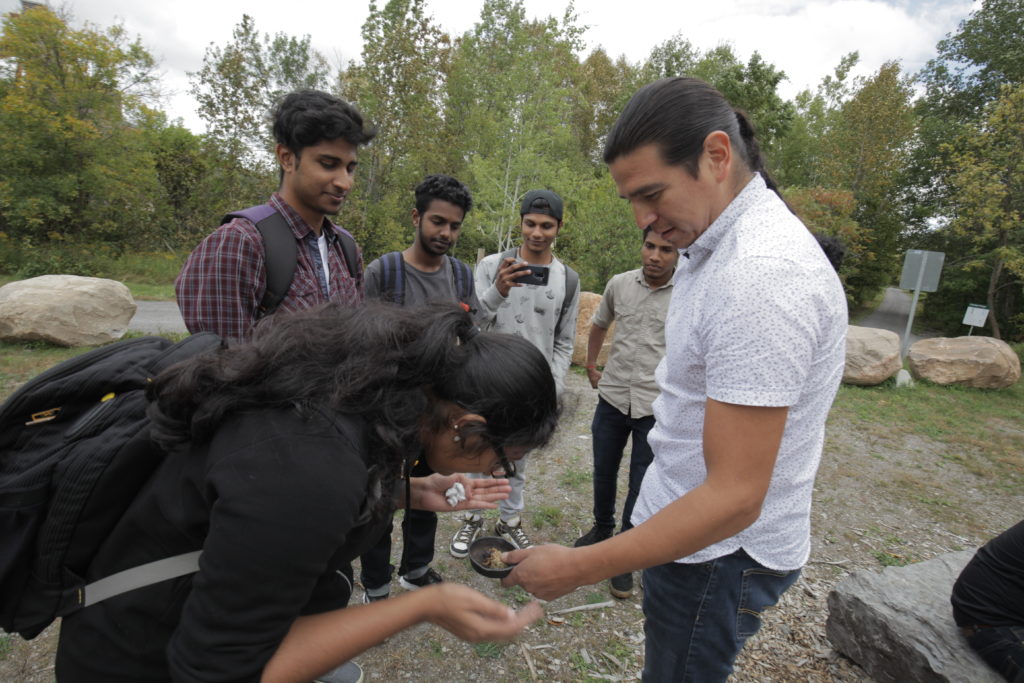
Capturing change in Indigenous labour markets
This project will develop and test a novel solution to document real-time changes in Indigenous labour markets to track and respond to labour market change.
Inclusive EconomyON -

REAL school
This learning program aligns Black, Indigenous and racialized youth with careers based on their interests, personality traits, and skill sets.
Inclusive EconomyON -

ELITE program for Black youth
Black youths gain access to hands-on learning and paid work-integrated training in science, technology, engineering, and mathematics fields and entrepreneurship.
Inclusive EconomyPathways to JobsAB -

Reskilling displaced retail workers
This project supports the design of a reskilling of displaced retail workers in Ontario, with a focus on racialized and Indigenous youth.
Inclusive EconomyPathways to JobsSectors in transitionON -

From policy to action
Two groups collaborate to address the social and economic impact of COVID-19 on local and equity-deserving communities by developing ways to leverage the economic power of anchor institutions.
Inclusive EconomyON -

Path to customer success
This project will assist diverse and marginalized women who have lost their jobs in the service sector, equipping them with the key skills, tools and mindset for resilient careers in the IT sector.
Inclusive EconomyON -

Remote work strategies for small businesses
Owners and operators of SMEs will learn the innovation skills to develop a long-term remote work strategy.
Inclusive Economy -

Aiming higher: Micro-credential training in aviation and aerospace
Innovative training and upskilling in the aerospace and aviation sector benefits workers and the industry.
Pathways to JobsSectors in transition -

New Brunswick digital career exploration
Youth explore in-demand career paths and connect with industry experts through virtual tours and workplace simulations.
Inclusive EconomyPathways to JobsTech and AutomationNB -

Luminary: Advancing Indigenous innovation
The Indigenous economy will benefit from increased research collaboration, improved knowledge mobilization, new networks and partnerships that advance economic growth, jobs and well-being.
Inclusive EconomyInnovation and scaling -

Core skills and rapid response
Indigenous youth benefit from this pilot, which develops a rapid customization process and core skills training that also addresses critical labour shortages.
Core skillsInclusive EconomyMB -

Digital marketing for small business
Small business owners will enhance their digital marketing capabilities to address these vital skill gaps and build resilience.
Pathways to JobsTech and AutomationON -

Construction with a purpose
Vulnerable individuals facing homelessness gain skills training and supports to help transition into in-demand construction careers.
Core skillsInclusive EconomyPathways to JobsON -
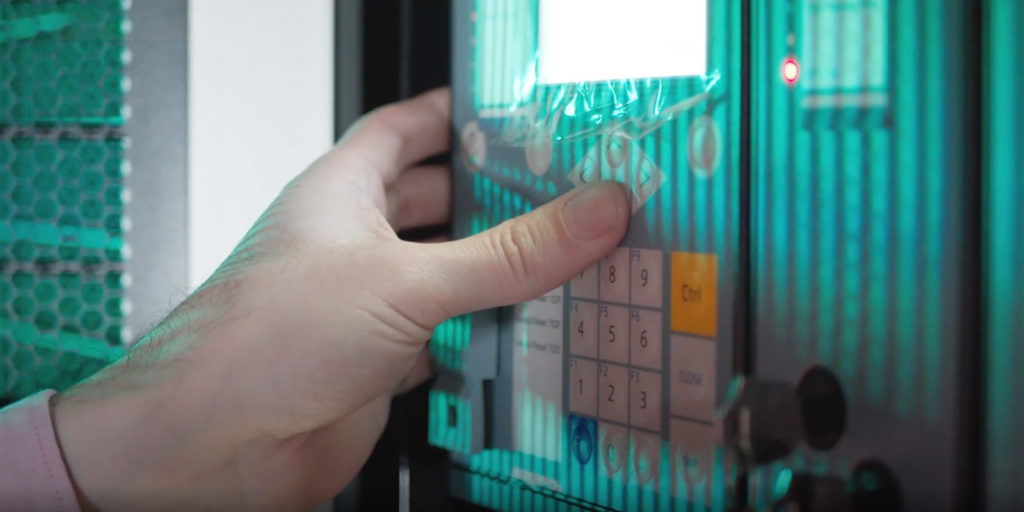
Virtual learning in Canada’s infrastructure sector
People who seek training to work in utilities in support of Canada’s critical infrastructure get the benefit of virtual learning.
Inclusive EconomySectors in transitionTech and AutomationBC -
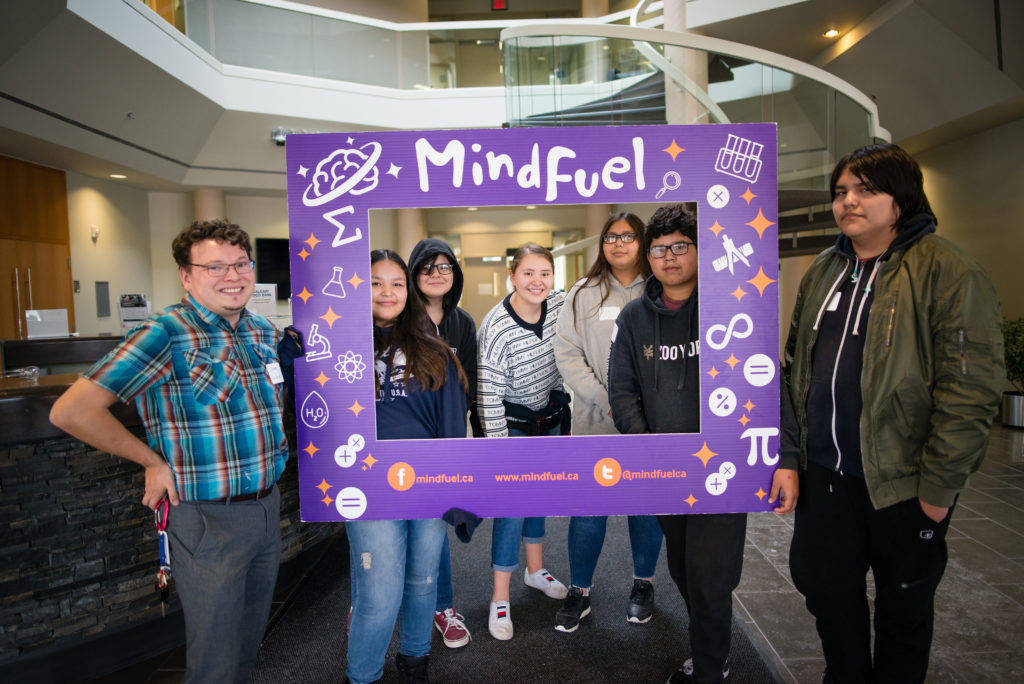
STEM skills and an innovation mindset for youth
This project develops STEM skills and an innovation mindset among youth.
Inclusive EconomyABBCYT -

Micro but mighty: micro-credentials for a recovering hospitality industry
Displaced hospitality and food service industry workers will gain micro-credentials to build skills and take certified training to enhance job prospects and support recovery.
Pathways to JobsON -

Tools and resources for gaming and digital media entrepreneurs
Founders of interactive digital media or game studio businesses who are racialized, BIPOC or LGBTQIA+ benefit from a toolkit and program that makes entrepreneurship in this sector accessible to more Canadians.
Inclusive EconomyPathways to JobsTech and AutomationON -

Language learning for young newcomers
BCIT students pursuing skilled jobs receive English language training and content to support them in their studies and job search efforts.
Inclusive EconomyBC -

Cook to connect
Cook to Connect supports newcomers’ transition into the workplace through an innovative program that provides employment support and skills for the food service industry.
Inclusive EconomyNL -

Virtual services for career practitioners
This project is a needs assessment of career practitioners and their capacity to offer online services to vulnerable groups during the pandemic.
Inclusive EconomyTech and AutomationBC -

Resilient newcomer women in Northwestern Ontario
Research aims to identify opportunities and barriers to full labour participation by newcomer women in the wake of COVID-19.
Inclusive EconomyON -

VILA: Virtual inclusive learning academy
Adults with physical and cognitive challenges participate in a virtual hub that offers life skills, academic support and job training.
Inclusive EconomyTech and AutomationON -

Georgian College: Digital transformation strategy
This project will increase knowledge, skills, comfort, and use of extended reality technologies.
Tech and AutomationON -
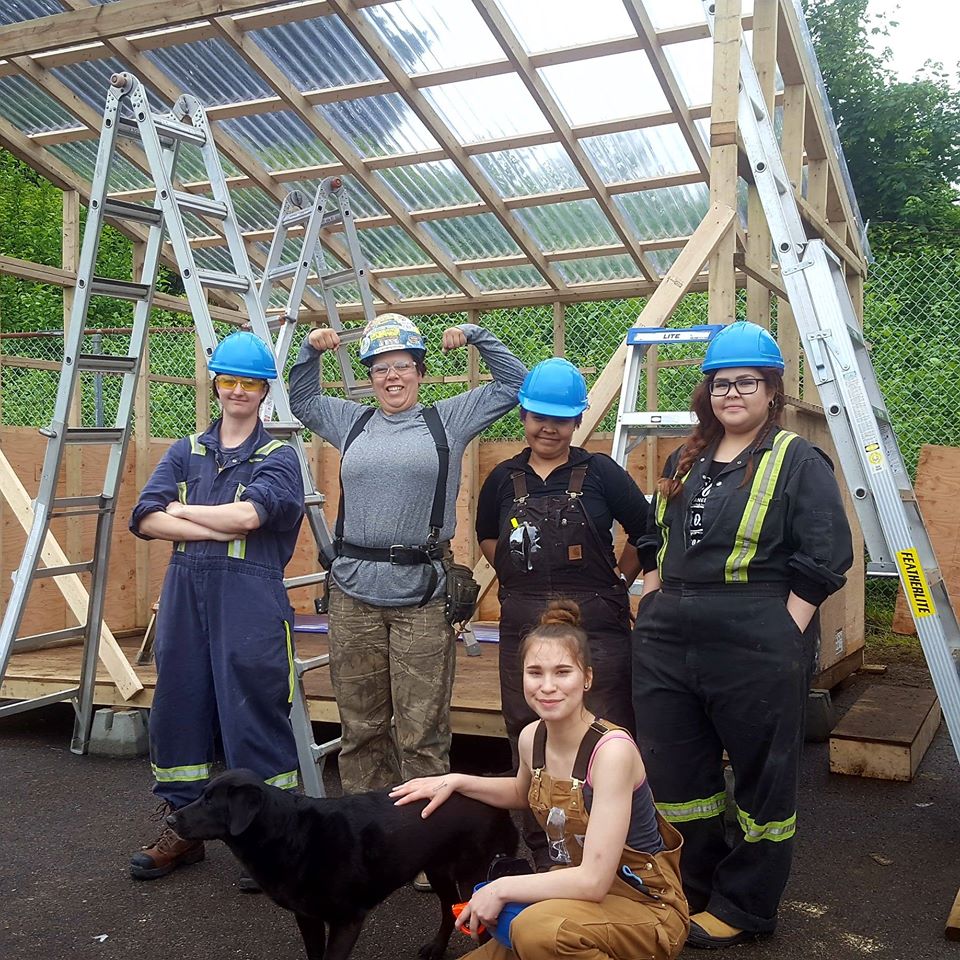
North Coast skills hub
This virtual platform will serve as a skills training and career development tool for people in small and remote northern communities in British Columbia.
Inclusive EconomyBC -

National Accessibility Resources for Employers (NARE)
This project will create and share resources for employers in disability management on a national basis to improve processes and policies to engage, accommodate, and keep employees with disabilities.
Inclusive Economy -

Alberta digital employment training
Newcomers gain employment training through online learning to meet labour market needs.
Inclusive EconomyTech and AutomationAB -

TIMES 2.0
This research will provide data that enables the Yonge Street Mission to better understand and support the journey to gainful employment for those living in poverty.
Pathways to JobsTech and AutomationON -

Services to social impact
Young women will transition out of the services sector and into social entrepreneurship as this program equips them with social, emotional and entrepreneurship skills to launch social impact businesses and through one-on-one coaching.
Inclusive EconomyPathways to Jobs -

ABC Skills Hub
Adults with low literacy and skill levels benefit from online learning for employability and essential skills.
Pathways to Jobs -

On the frontlines of crisis training program
This project is designed for youth with skills gaps by providing training in the culinary and non-profit sectors to give them skills and resilience.
Inclusive EconomyON -
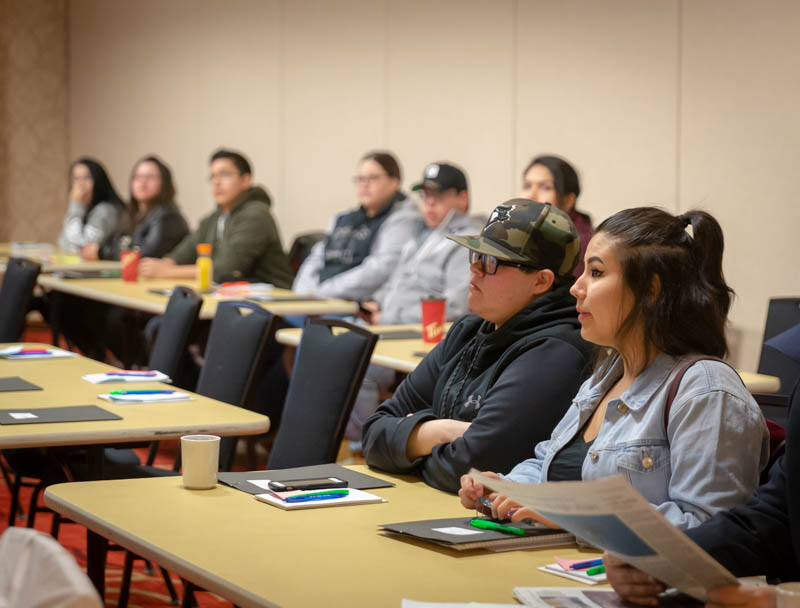
Leadership development for Indigenous communities
Indigenous communities will be empowered through a national Indigenous leadership program with links to industry and career development opportunities.
Inclusive EconomyBCNBON -

Mind your health
Hospitality and food service industry workers will be empowered with education and support to deal with mental health and substance use challenges and crises.
Inclusive Economy -
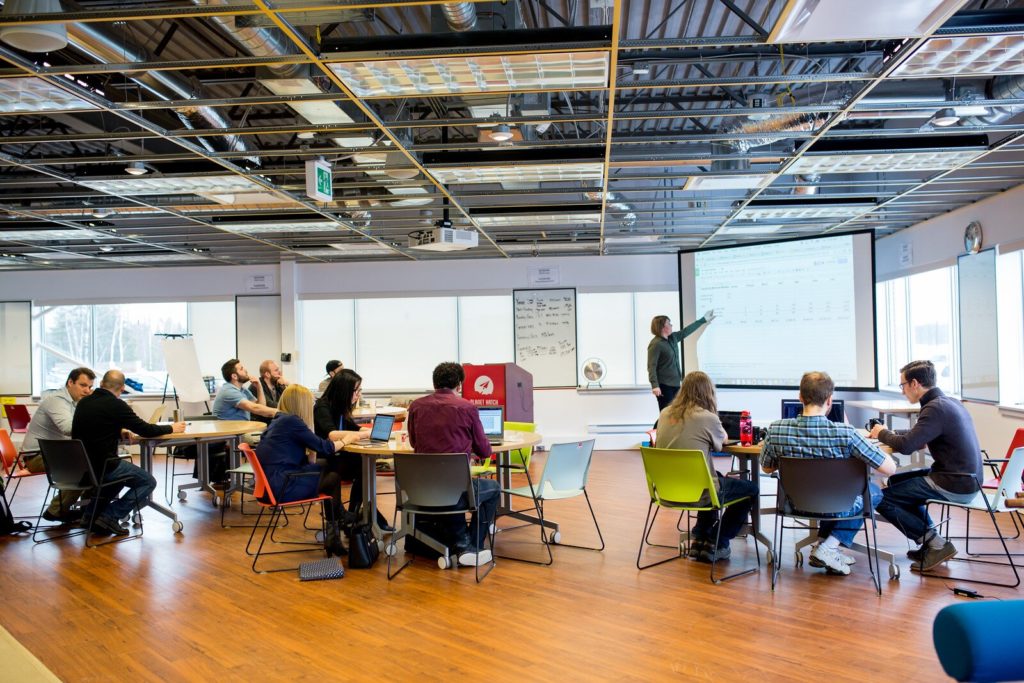
Future of work skills development program
This partnership between the educational and private sector aims to promote skills resiliency and future-proof the Canadian labour force in a program of learning and targeted skills training.
Inclusive EconomyNB -

Virtual learning for food and beverage manufacturers
Online training is customized and adapted to support workers in the Canadian food and beverage processing industry.
Inclusive EconomyTech and Automation -

Atlantic Autism Supports and Employment Network (AASEN)
Individuals on the autism spectrum connect to job opportunities and local employment supports in Atlantic Canada
Inclusive EconomyNBNLNSPE -

Skills for a clean economy
National research will identify regions and workforce segments disproportionately affected by the pandemic and scope project demand for roles and retraining required to advance the clean economy.
Sustainable Jobs -
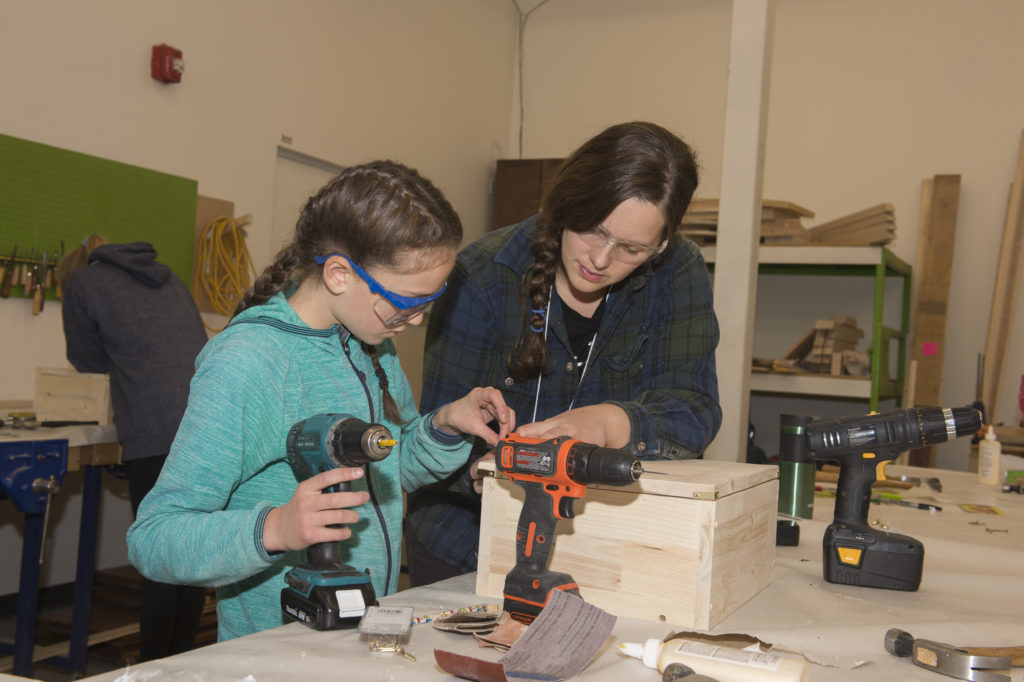
Doing it right
Yukon women in trades and technology will be empowered from research findings that examine barriers to success and offers peer support and solutions.
Inclusive EconomyYT -

Students’ soft skills at CCNB
To ensure students experience a successful transition from their post-secondary education to the work market, CCNB is accompanying them in the development of interpersonal and soft skills, thus contributing to meet New Brunswick’s employers’ expectations of well-qualified future workers.
Core skillsInclusive EconomyNB -

Free education for an inclusive economy
This research project examines free education in a town grappling with unemployment and recession.
Inclusive EconomyAB -
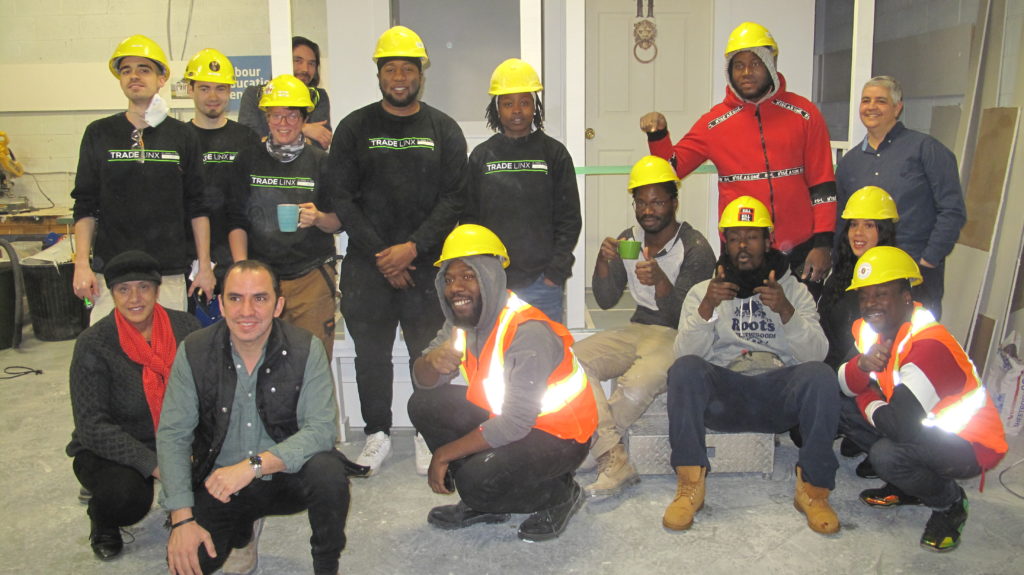
Workforce 2030: Rapid upskilling for green building
More than 500 workers affected by the pandemic will benefit from training in the green building sector to transition to in-demand jobs.
Inclusive EconomySustainable JobsON -

College Transformation des Collèges
Colleges in the Atlantic Region have partnered to advance a collaborative vision built on innovation and equity to transform the college system. Through a virtual Innovation Centre and a series of cutting-edge pilot projects that form the College Transformation des Collèges initiative, member colleges will engage with a broad range of partners to design, deliver and evaluate high-impact innovations.
Pathways to JobsNBNLNSPE -

Early Childhood Education Lab
We are looking to understand what it means for educators to thrive in their career; what supports do they need to learn and apply best practices?
Pathways to JobsNB -

Assessing and developing workplace employability skills with ESAT
Development of the Employability Skills Assessment Tool (ESAT), a cloud-based tool to measure an individual’s social & emotional/employability skills.
Innovation and scalingPathways to Jobs -
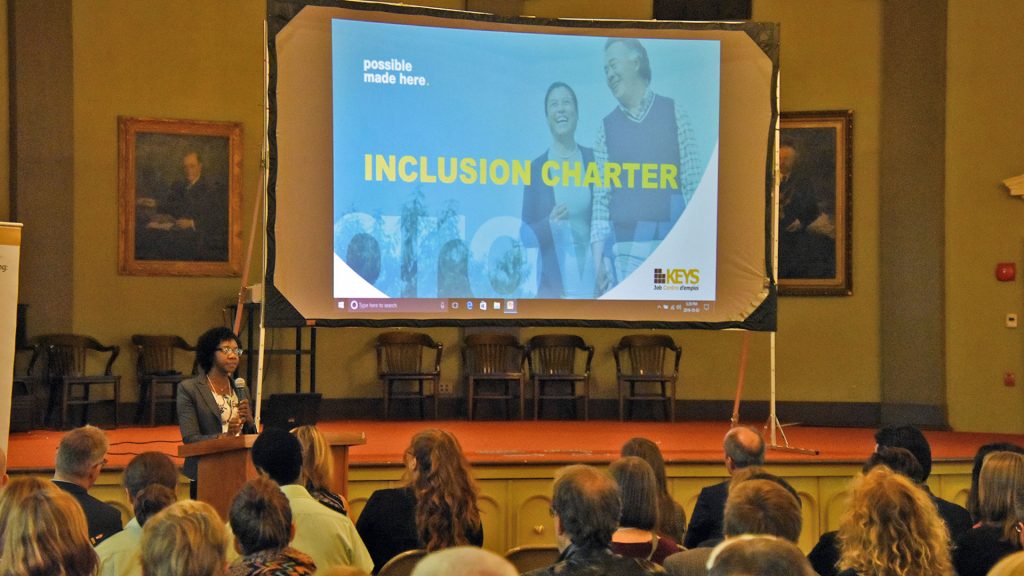
Workplace Inclusion Charter Expansion
Connect under-utilized talent pools with local employers in Kingston through the implementation of the Workplace Inclusion Charter program.
Inclusive EconomyON -

Digital Fluency Stackable Micro-credentials for the Workforce
Development and delivery of a series of three stackable micro-credentials for workers who are disadvantaged due to a lack of digital fluency which is a core employment skillset across Canadian industry.
Pathways to JobsTech and AutomationON -

In Motion & Momentum+ (IM&M+): Building resilience, hope and sustainable futures
This program assists people who are distant from the labour market in acquiring key life and employability skills.
Innovation and scalingPathways to JobsABBCNLNSONSK -

Bridging the Gap: A Learning Platform and Marketplace for Job-seekers and Employers
A scalable system that assesses competencies (using AI based work-related tasks) and issues micro-credentials to job-seekers.
Pathways to JobsSustainable JobsTech and AutomationABBCMBNBONQC -

What works for work? Employment integration in youth service hubs across Canada
The project implements and tests the Individual Placement and Support (IPS) intervention among youth who are not in education, employment or training.
Inclusive EconomyQuality of workBCNSONQC -

The Indigenous Employment Hub
The Indigenous Employment Hub can help meet labour needs for future (infrastructure) projects in B.C. and become a model for creating meaningful employment opportunities for Indigenous people.
Inclusive EconomySectors in transitionBC -

Scaling up the Canadian Remote Access for Dementia Learning Experiences (CRADLE+)
The first, fully-online, multilingual education opportunity specifically designed for historically isolated, unregulated care workers.
Inclusive EconomyInnovation and scaling -

Reboot Plus Expanded
First-of-its-kind program in Canada will help youth who haven’t finished high school to re-engage in both education and career development.
Core skillsInclusive EconomyBC -

Skills Match – The Energy Fit
To assist unemployed/underemployed oil and gas workers to transition to more in-demand energy sector jobs.
Inclusive EconomySME AdaptabilitySustainable JobsABBCSK -

Futureproofing the Food and Beverage Processing Workforce
The first systematic testing of a framework to help the food and beverage processing industry adapt to change.
Inclusive EconomySectors in transitionNBNLNSPE -

Accelerating the adoption of Artificial Intelligence in healthcare
Shifting the mindset and educating healthcare professionals in the effective, appropriate, safe, and compassionate use of AI.
Sectors in transitionTech and Automation -
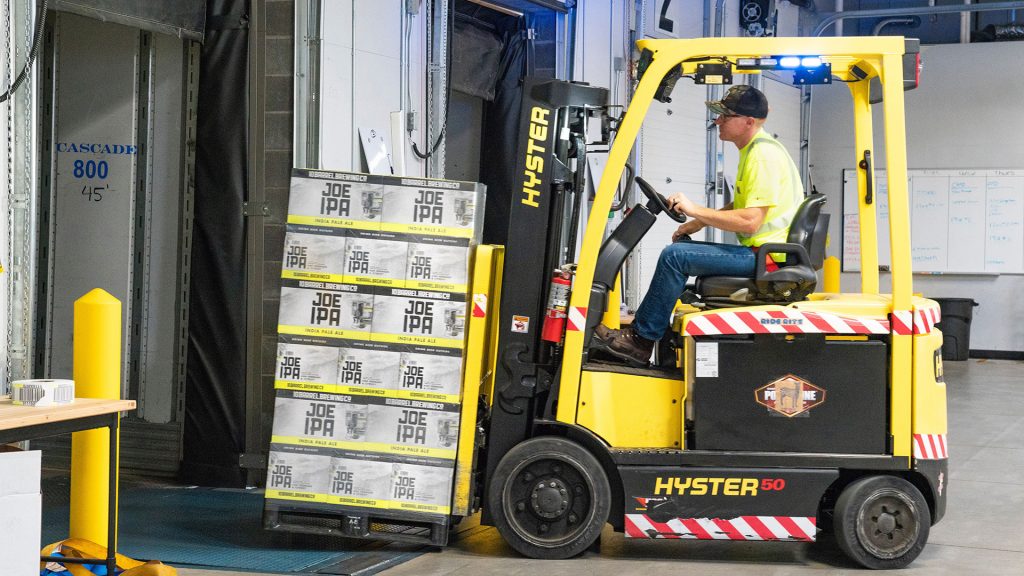
Material Handling 4.0: Building pathways to employment for disadvantaged groups
Help new and current material handlers in Hamilton to transition to new job opportunities within the supply chain sector.
Innovation and scalingPathways to JobsBCMBNSON -

Upskilling Canadian youth for in-demand tech careers
Launching low-income, young adults into IT careers by providing professional and technical skills training, job placement, and five years of post-hire services.
Inclusive EconomyInnovation and scalingABBCNSON -

AspireAtlantic
Creating a program to bridge the gap between employer demand and workforce attachment in Nova Scotia and PEI.
Innovation and scalingPathways to JobsNS -

Canadian Alliance for Skills and Training in Life Sciences (CASTL)
Hub for multiple, industry-focused, and applied learning streams to acquire the academic knowledge, technical skills, and professional competencies for a career in biosciences.
Pathways to JobsSME AdaptabilityNBNSPE -
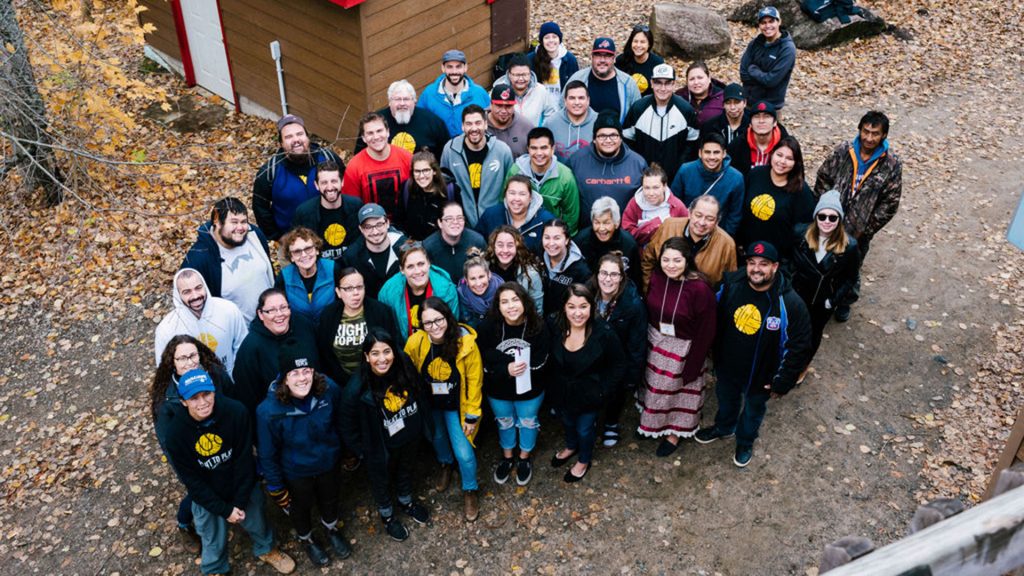
Upskill and certify Indigenous child and youth practitioners
Create innovative educational opportunities that reduce barriers to Indigenous peoples’ participation and increase the number of Indigenous youth workers with postsecondary certificates who have marketable skills.
Inclusive EconomyABBCMBNBNLONYT -

Project Connect: Technology-enabled learning for Métis communities
Project Connect will design and test an online delivery model for a professional project administrator program created for and with B.C.’s Métis community.
Inclusive EconomyBC -

Virtual recruitment & assessment for the unionized construction industry
Project to create a virtual recruitment and assessment centre in four regions across Canada to recruit underrepresented populations into the unionized construction industry.
Inclusive EconomySectors in transitionTech and Automation -
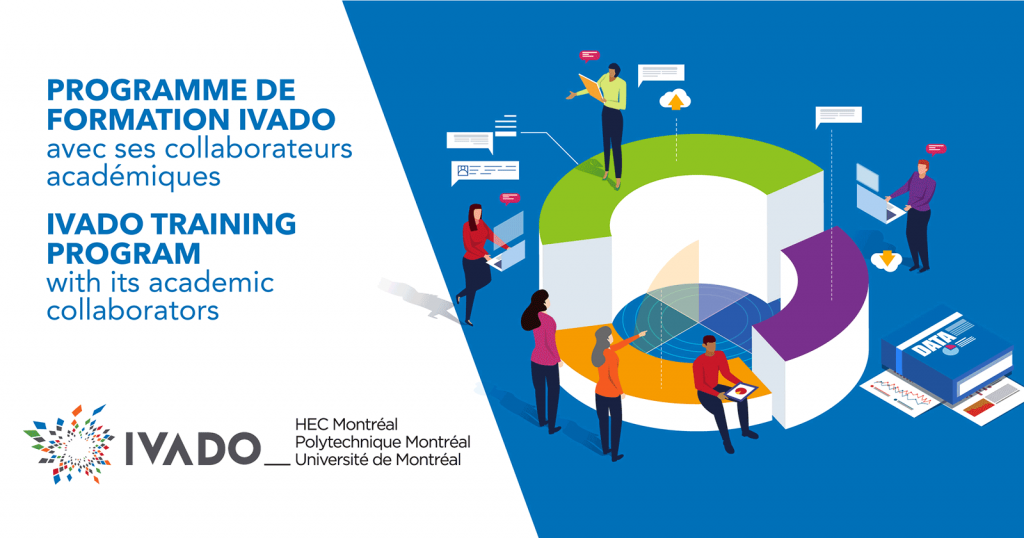
From data to decision: AI training and professional certification
Short-term AI-focused training intended primarily for mid-career professionals wanting to integrate new AI knowledge into their organizations.
SME AdaptabilityTech and AutomationQC -
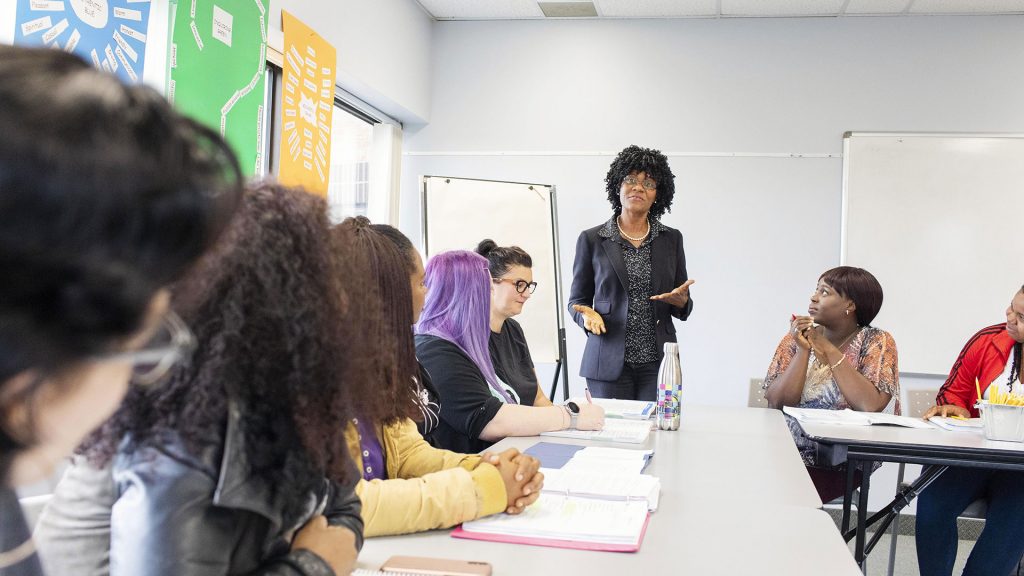
Synergy: Workforce Development for Vulnerable Women to Succeed
Synergy is an extension of a three-year research, pilot, and knowledge transfer project aimed at advancing gender equity in the labour market.
Inclusive EconomyTech and AutomationABBCMBNBNTNSONQCSK -

Microlearning in the Mining Industry
Remote mine employees will learn on-the-job via mobile micro-learning, for a few minutes each day, increasing their skill levels and ensuring increased productivity.
Pathways to JobsSustainable JobsNLNU -

ArtWorksTO
ArtWorksTO will connect motivated, job-ready youth with clients in need of creative talent.
Pathways to JobsON -

Facing the challenge of digital transformation in the insurance sector: women at work
Action research project on the future of female workers facing the automation of tasks in their job duties in the insurance sector.
Inclusive EconomyTech and AutomationQC -

Skills Development in SMEs for Faster Adaptation to Job Market Changes
To speed up the pace of organizational buy-in to a culture of continuing education and the pace of workforce skills development in eight Quebec regions.
Pathways to JobsQC -

Best Practice Models for Industry Engagement
First Canadian test of online VALID-8 tool allowing trades apprentices to be objectively assessed by a certified journeyperson and also demonstrate what they are capable of to prospective employers.
Pathways to Jobs -

Tourism Hospitality Emergency Recovery (THER)
Rapid-response project to design and test industry-specific, skills-focused recovery options for the hard-hit tourism and hospitality sector.
Inclusive Economy -

CLIMB: Continuous Learning for Individuals’ Mid-career and Beyond
Mid-career workers are most vulnerable to disruption of the labour market but there is little widespread information, resources, or training to support a mid-career change.
Core skillsInclusive EconomySME AdaptabilityBC -

Transition to a New Tomorrow
Unique professional development program to support mid-career oil and gas workers
Core skillsSME AdaptabilityAB -

BOLD: Better Outcomes in Layoffs and Downsizing
Retraining and skills development project for manufacturing and steel workers
Inclusive EconomyPathways to JobsSME AdaptabilityABON -

Supporting Mid-Career Workers with Disabilities
Assessing tools and resources for mid-career workers with disabilities
Core skillsInclusive EconomySME AdaptabilityMBQC -

Building the Skills of the Trucking Industry
The project will leverage virtual reality technology to deliver training in a way that complements varied learning styles. The virtual reality simulator is the first of its kind specifically designed for the trucking industry with AI technology and the ability to track the user’s eyes and enhance their driving skills in the unlimited replays.
Pathways to JobsSectors in transitionSME AdaptabilityNBNLNSPE -

Learner Shock: Preparedness of Learning
Testing strategies for addressing “Learning Shock”
Core skillsInclusive EconomySME AdaptabilityMB -

Supporting Mid-Career Workers in Retail and Meat Processing
Transitioning into strong growth rate jobs
Pathways to JobsSectors in transitionSME Adaptability -

EDGE UP: Energy to Digital Growth Education and Upskilling Project
Digital upskilling project to transition displaced energy sector workers
Core skillsInnovation and scalingSME AdaptabilitySustainable JobsAB -

Indigenous ICT Development Centre
Exploring approaches to build awareness and capacity in the information and communications technology sector for Indigenous youth and underemployed communities.
Inclusive EconomyMB -

Project Integrate
Testing an integrated assessment model and job matching for youth job seekers
Inclusive EconomyABBCNSON -

For-Credit InSTEM Program
Testing a culturally-based approach to essential employability skills training for Indigenous and Northern youth.
Inclusive EconomyABNTYT -

FUSION: Future Skills Innovation Network for Universities
A national network of Canadian universities focused on innovative skills development to prepare students for the future economy
Core skillsInclusive EconomyABBCNLONQCSK -

FAST: Facilitating Access to Skilled Talent
Testing expanded occupation streams for an online skills assessment and development platform to help newcomers better enter the labour market.
Inclusive EconomyInnovation and scalingBCMBNSON -

ADaPT: Digital competencies
New skills training program to test a blended approach for digital and professional competencies.
Pathways to JobsTech and AutomationABNSON
Click on each province and territory to filter projects based on the communities they serve. You can also use the Pan-Canadian toggle to include projects that span across the entire country.
Project List
